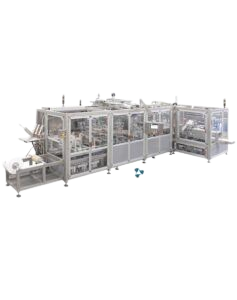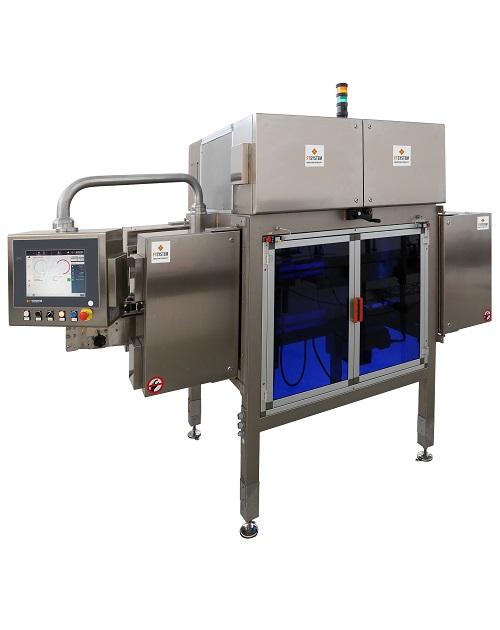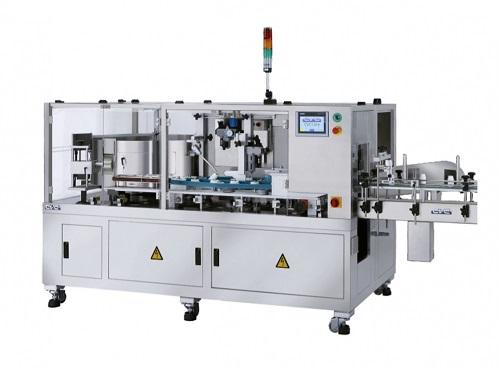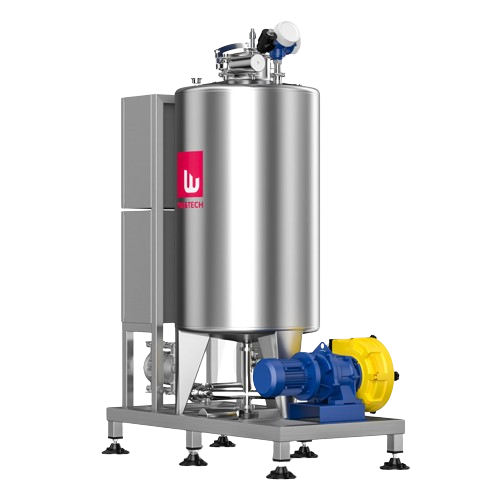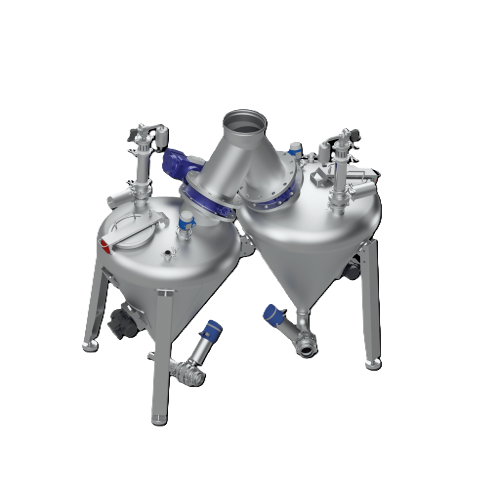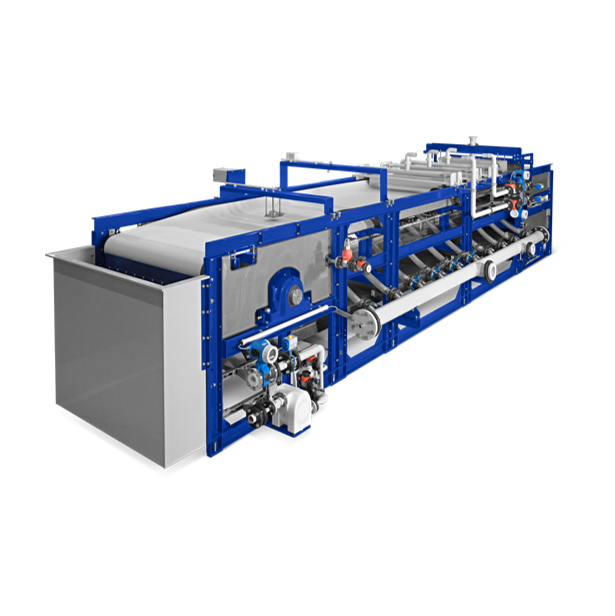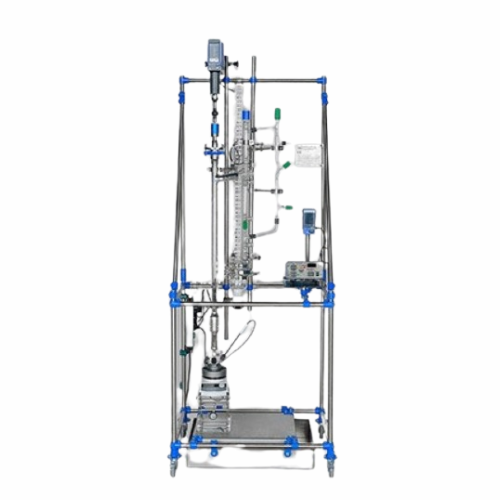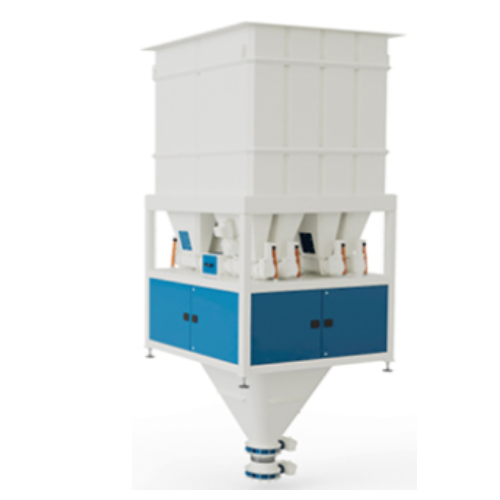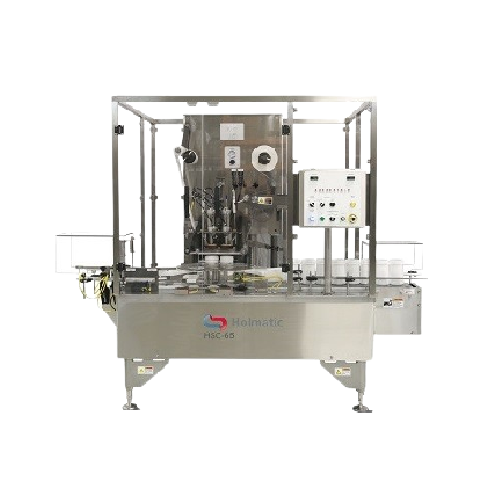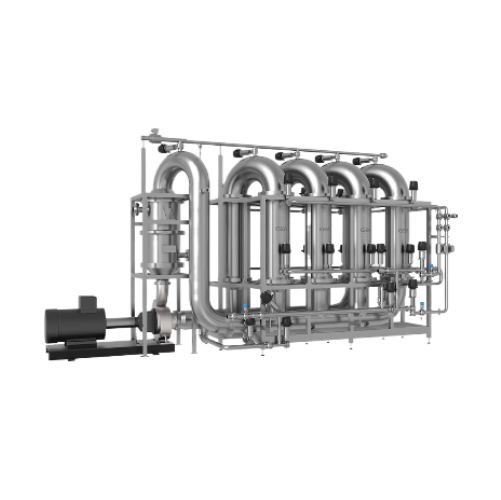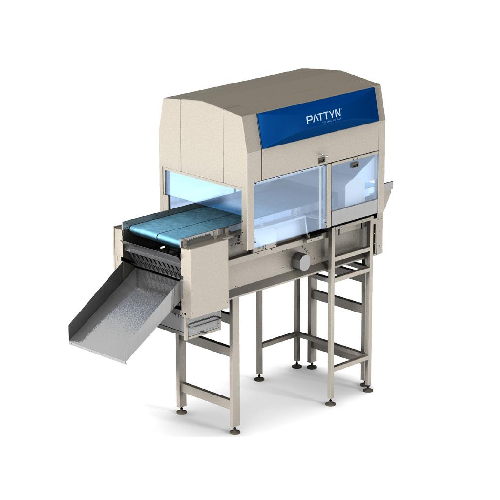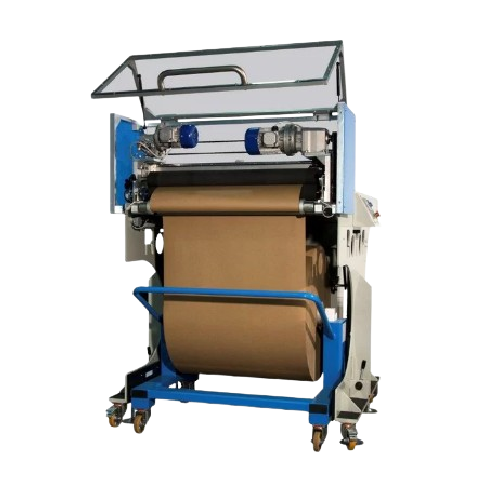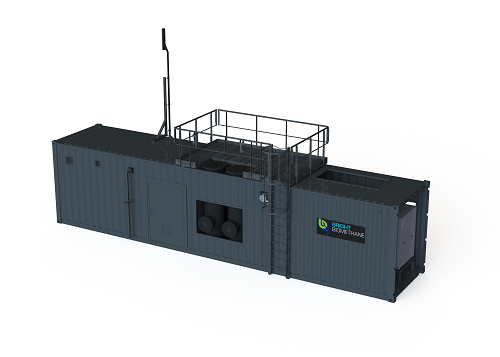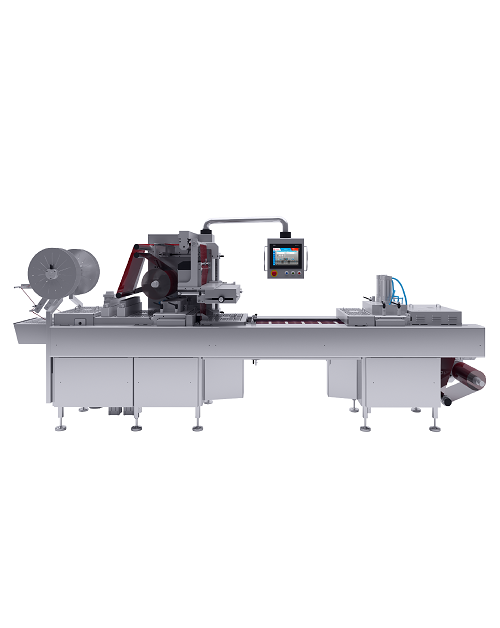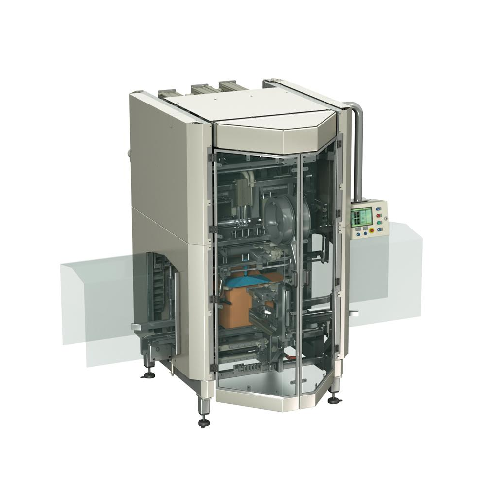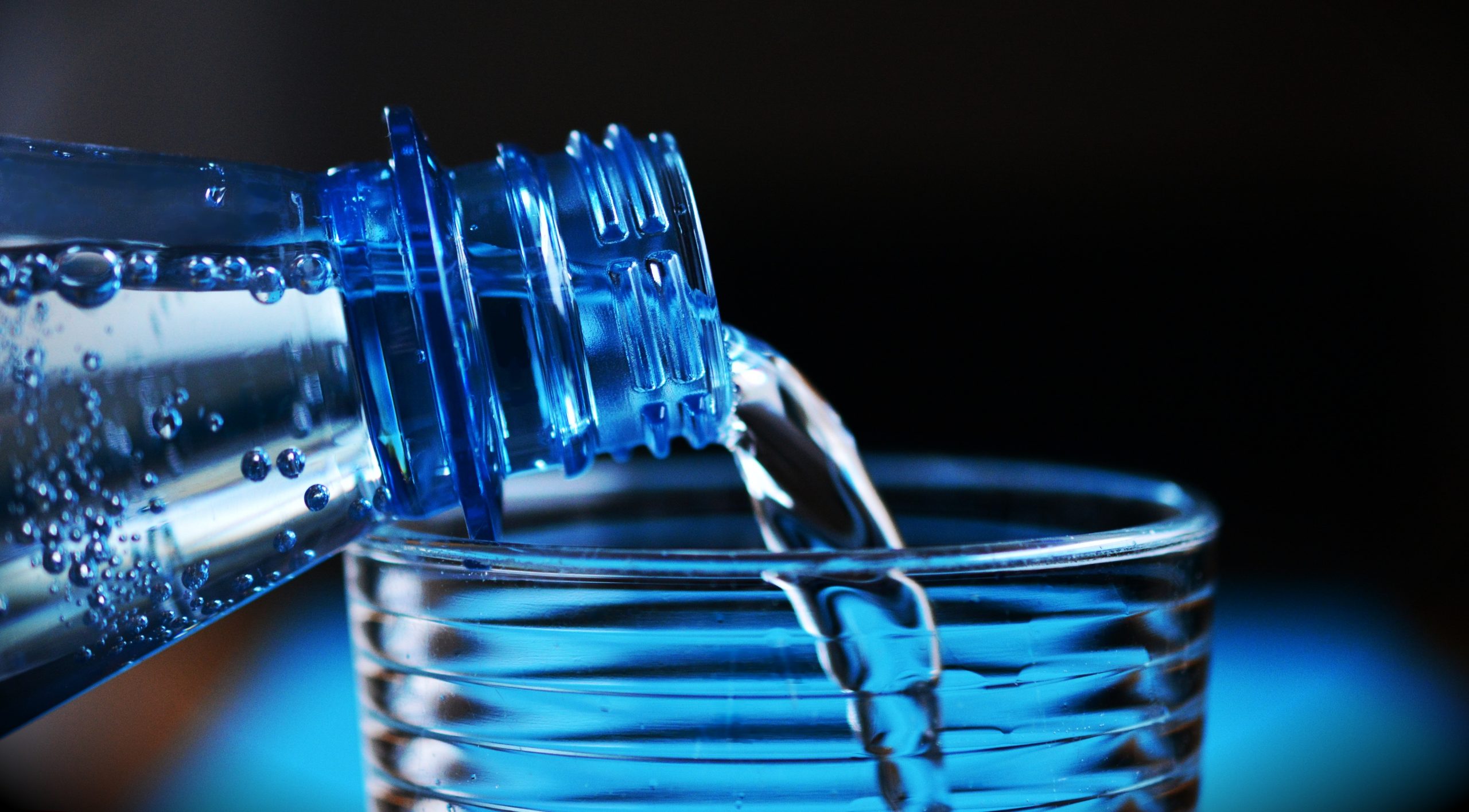
Making Mineral Water
Find innovative production technology for making mineral water and connect directly with world-leading specialists
Mineral water is mother nature’s cocktail of dissolved solids. The concentration of essential chemicals in the water makes it an excellent source of nutrients and electrolytes. Although your bottled product retains most of the properties present at its natural condition, the water still needs some help before it can be safely consumed.
Select your mineral water process
Tell us about your production challenge
The natural chemicals that give mineral water its name
Mineral water is rich in natural elements namely calcium carbonate, magnesium sulfate, potassium, and sodium sulfate.
In the US, only water that contains 250 parts per million dissolved solids in its natural state classifies as mineral water. The EU does not specify any minimum mineral content as long as the water is bottled at source. Member states, however, keep an official register of producers in this sector.
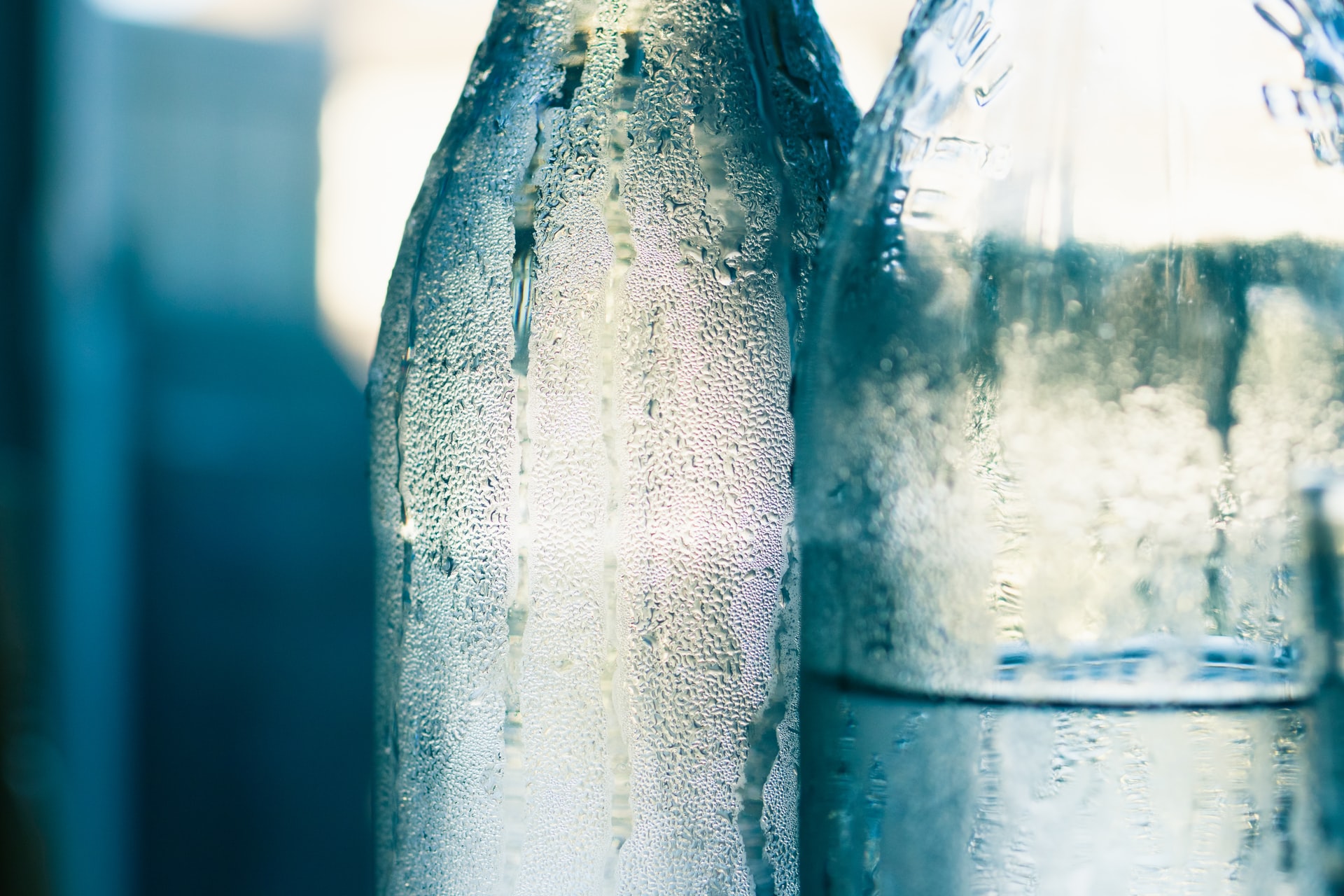
When can you say mineral water is natural
Minerals can theoretically be added to distilled water, but you can only market bottles as ‘natural mineral water’ if the mineralization occurs organically in aquifers. Water picks up its mix of minerals as it seeps through layers of rock on its way from the earth’s surface to underground streams.
While you may decant the sourced water to filter out undesirable chemicals such as iron and arsenic, your production process may not add any minerals further to it.
Still or Sparkling? Managing carbon in mineral water
Natural mineral water contains carbon dioxide. Even if you are bottling non-carbonated water, it still has a degree of CO2 in it – the levels are just not sufficiently significant.
You may, however, decarbonate and re-carbonate the water during processing to control the intensity of effervescence in the bottle. If you want to make a more lively beverage, you can fortify the naturally carbonated water with an extra supply of bubbles.
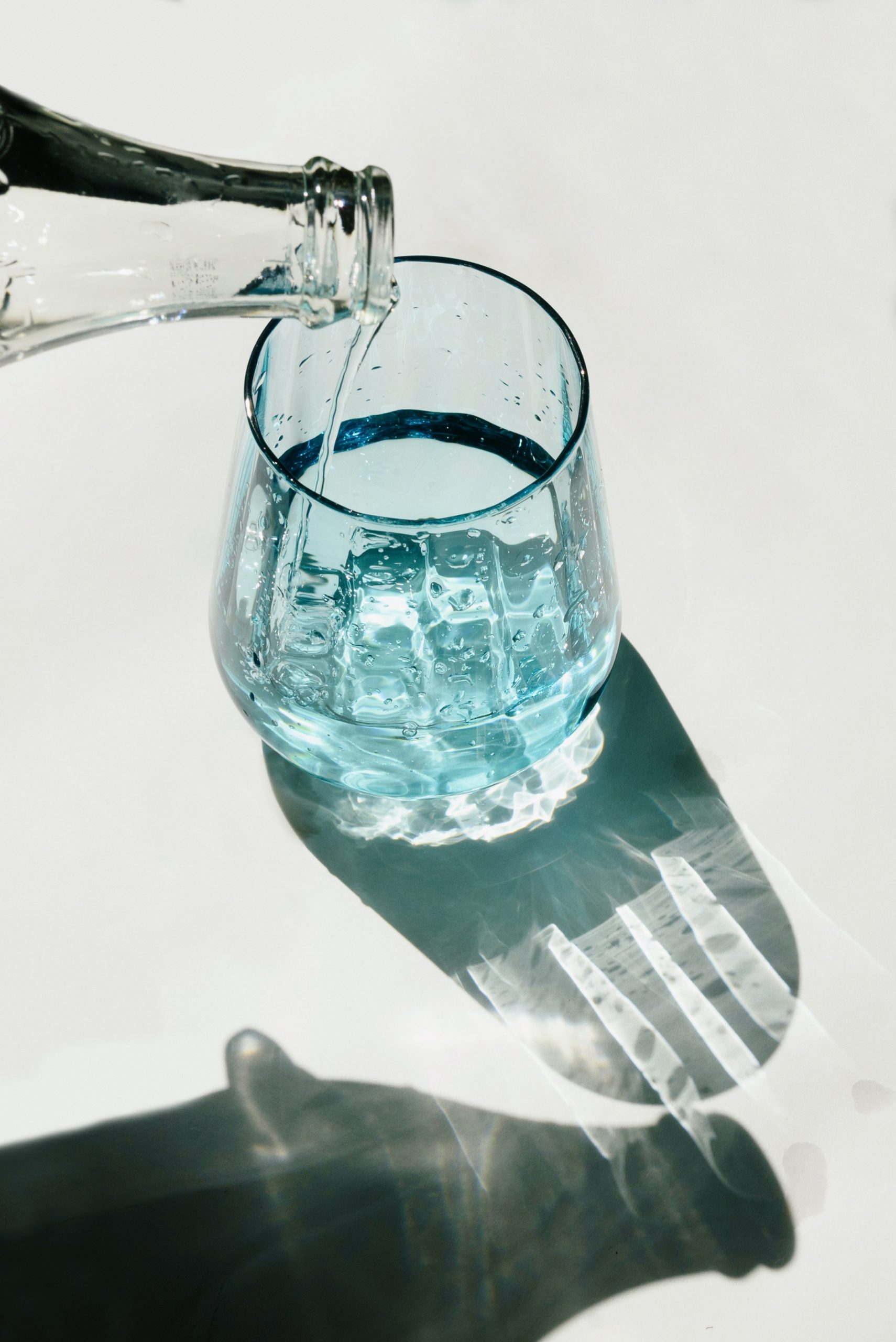
Declare your fluoride intensity
Fluoride occurs naturally in water, but a high exposure to the mineral can lead to tooth decay and skeletal damage.
If the fluoride concentration in your mineral water is higher than 1 mg/l, you must indicate the fact on the label. Moreover, if the content is over 1.5 mg/l you are bound by the Food and Agriculture Organization to advise customers that the product is not suitable for children under 7 years.
Processing steps involved in mineral water making
Which mineral water technology do you need?
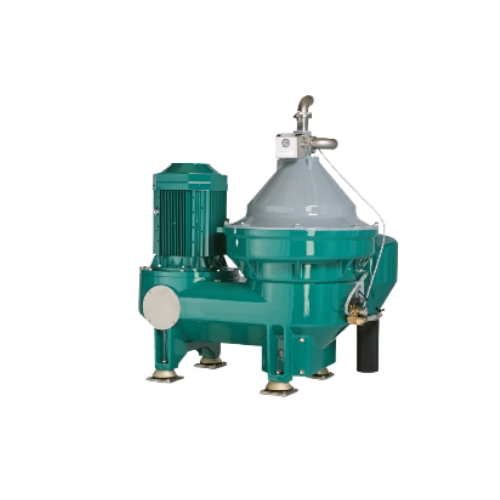
Separators for cooling lubricants and industrial fluids
Efficiently separate complex oil-water mixtures and cooling lubri...
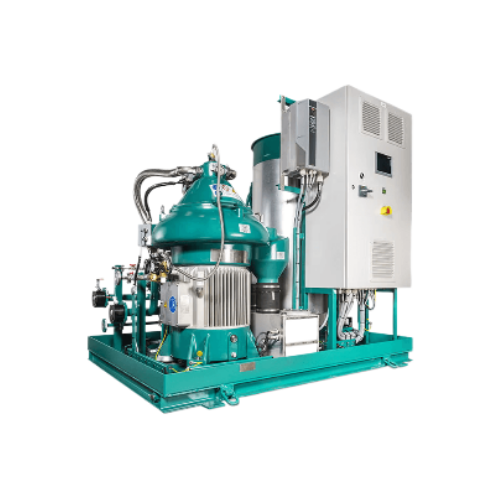
Marine oil and water purification separators
Optimize your marine operations with high-efficiency separators designed to p...
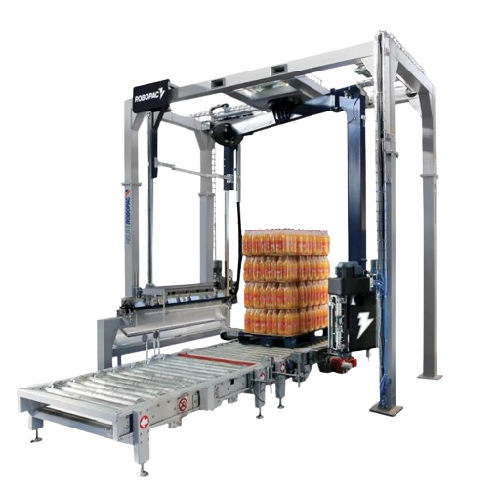
Automatic rotary arm wrapper for palletized loads
Enhance your packaging line with a medium-speed, rotary arm solution de...
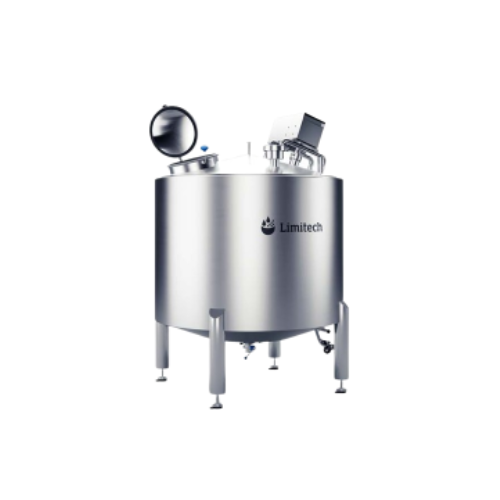
Cylindrical buffer tank for processing lightly liquid products
Optimize production continuity with this cylindrical buff...
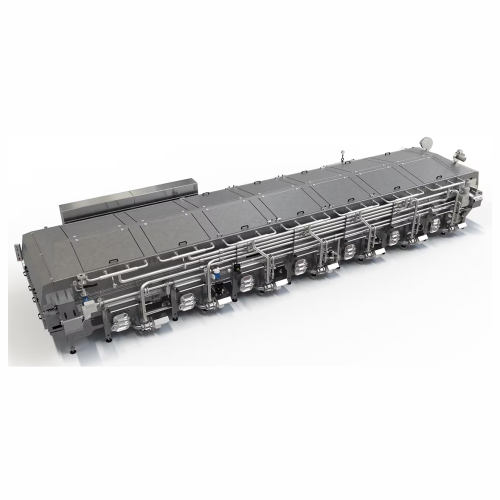
Compact tunnel pasteuriser for beverages
Ensure beverage safety with precise pasteurisation in a compact design that integr...
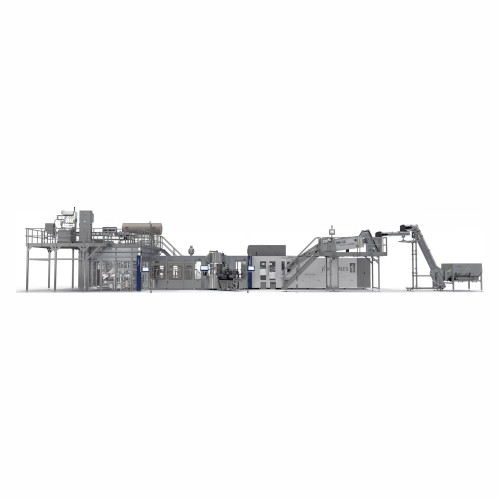
High-performance stretch blow moulding and labelling system
Maximize space and efficiency with this compact system that ...
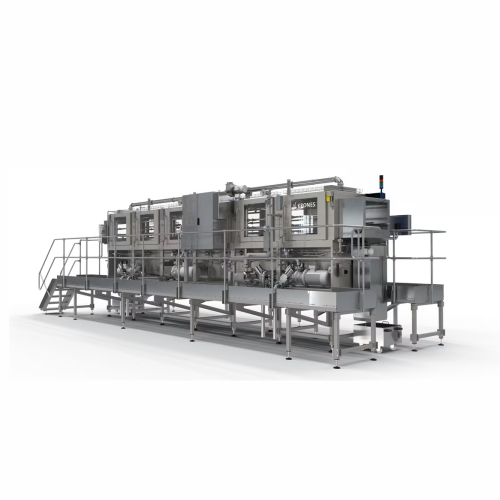
Crate washer with adaptive jetting units
Ensure consistent cleanliness of beverage crates with a washer that adapts to vary...
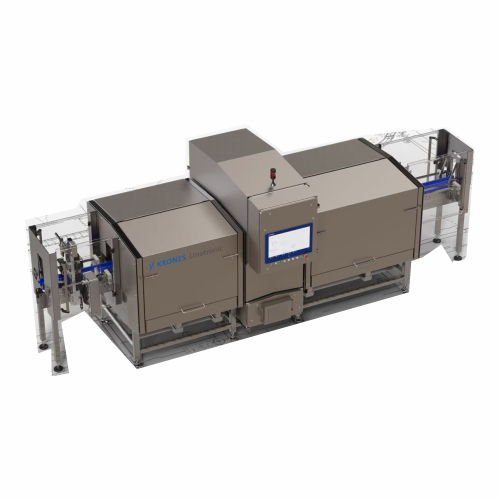
X-ray container inspection system for beverages
Ensure the integrity and quality of your beverage products with cutting-ed...
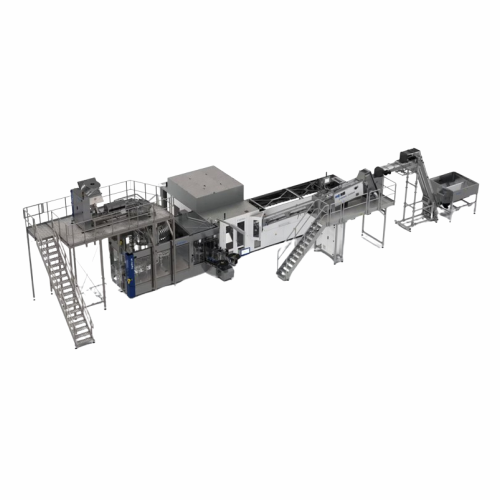
Wet-section block solution for non-carbonated water
Streamline your bottling operations with a compact solution that effi...
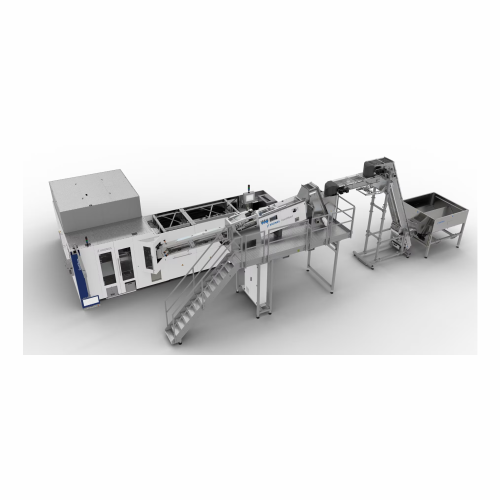
Stretch blow moulder for Pet containers
Optimize energy efficiency and production versatility with this stretch blow moulde...
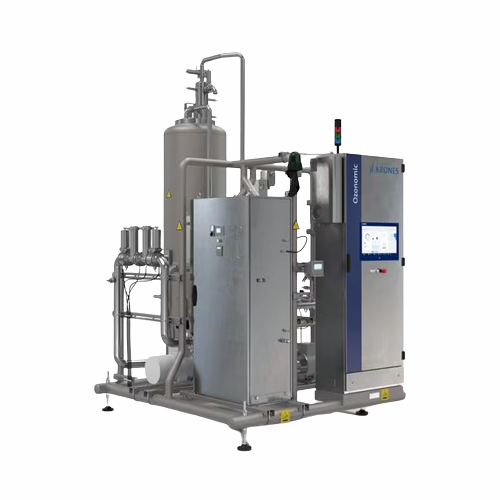
Water ozonisation system for enhanced disinfection
Ensure impeccable water quality with cutting-edge ozonisation that eff...
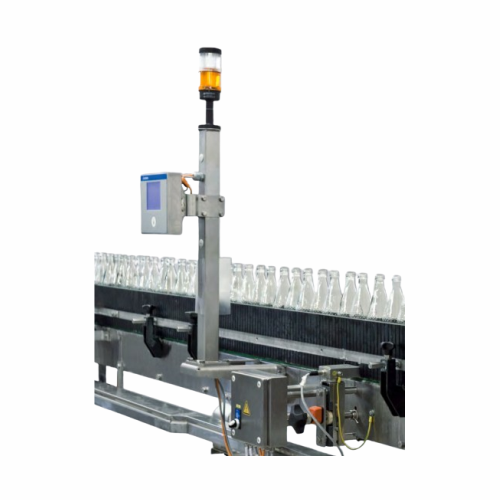
Caustic residue detection for bottle washing
Ensure product purity by detecting and eliminating residual caustic in return...
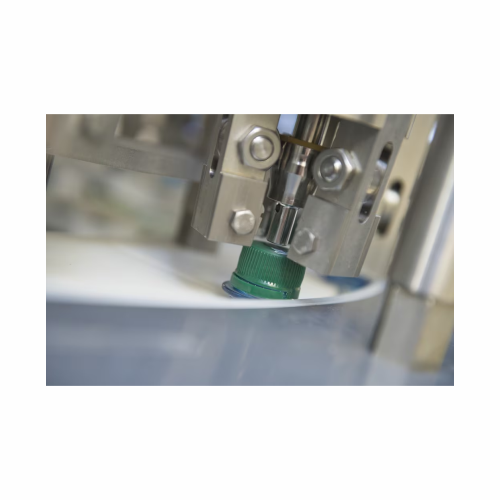
Decapper for removing screw caps
Efficiently unscrew caps from various bottle types without damaging the threads, even under...
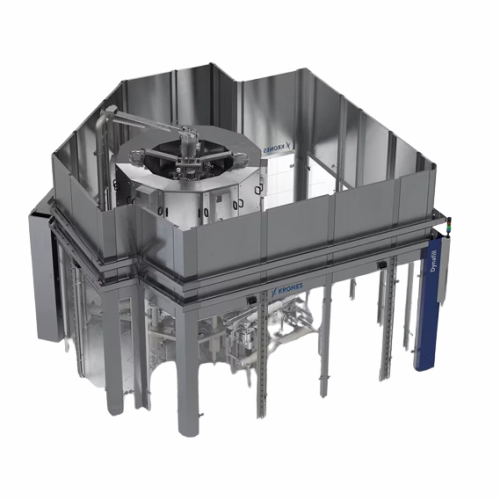
Innovative beer filling and capping technology
Revolutionize your filling process with an integrated system that combines ...
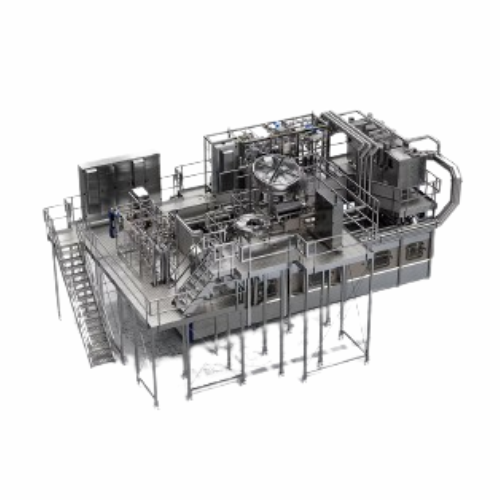
Aseptic bottle sterilisation system for Pet containers
Ensure aseptic integrity and high-speed efficiency in beverage pro...
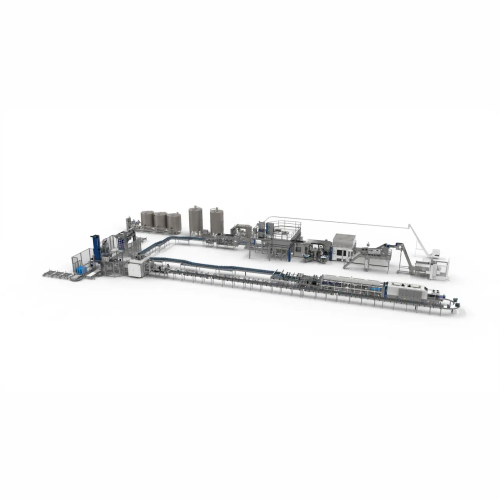
Automated product change-over system
Maximize your production line efficiency by reducing downtime during product changeove...
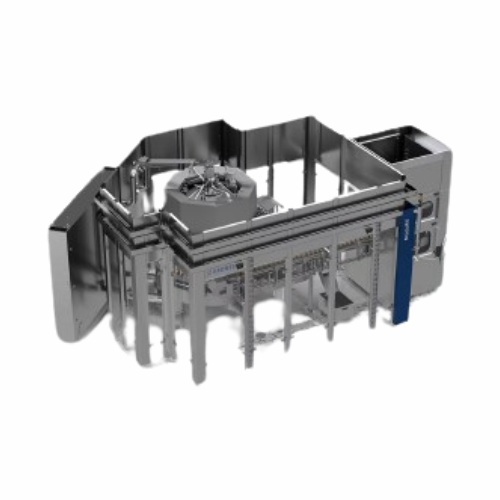
Filler-seamer block for cans
For high-speed beverage production, this solution integrates filling, seaming, and cleaning in ...
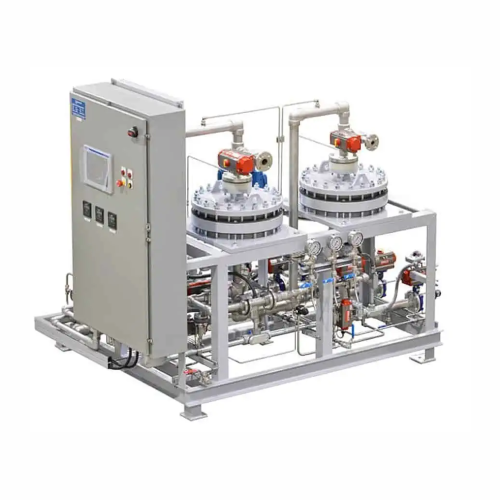
Ultrapure water demineralizer for critical boilers
Achieve high-purity water production with minimal chemical usage and a...
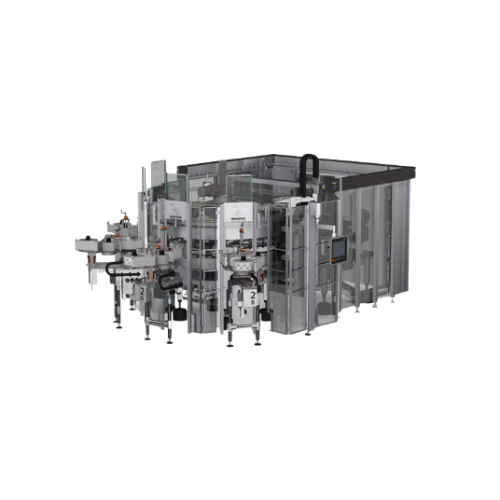
Self-adhesive labeling for glass and Pet bottles and beverage cans
Maximize your production efficiency with a labeling ...
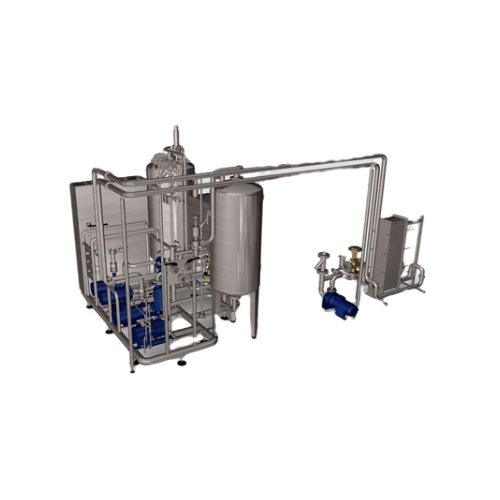
Demineralization and carbonation for bottled table water
Ensure consistent carbonation and precise blending for beverage ...
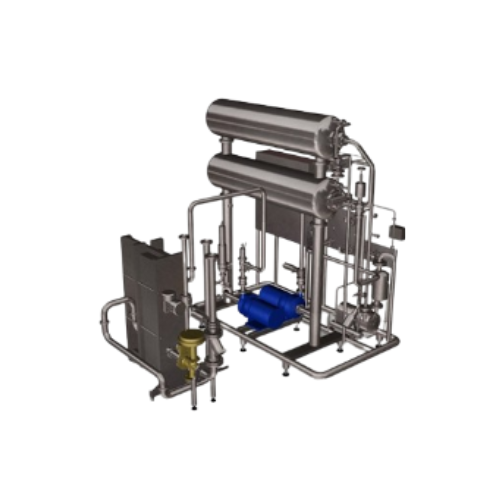
Water deaerator for beverage production
Enhance the quality and extend the shelf life of your beverages with our cutting-ed...
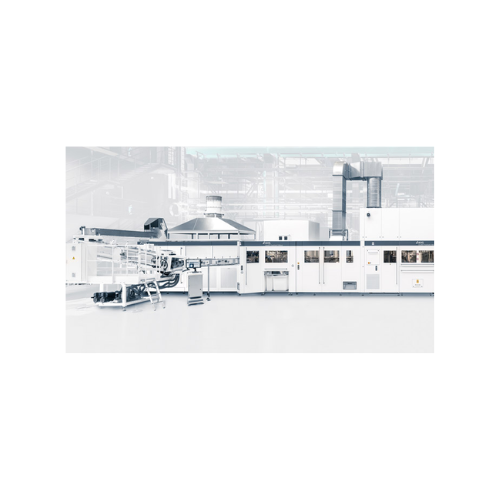
Pet bottle stretch blow molding with coating and filling
Extend the shelf life of your beverages and liquid products with...
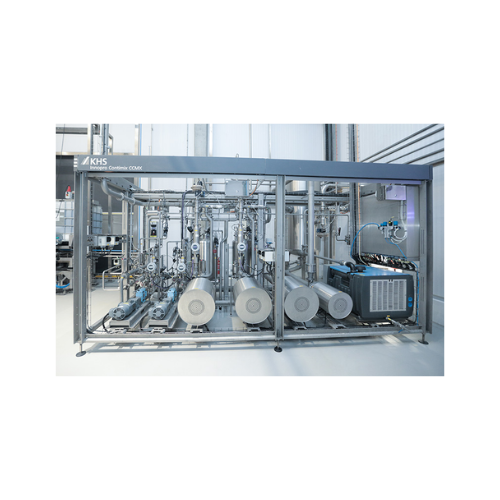
Dosing and blending system for beverage production
Enhance your beverage production with a flexible system capable of pre...
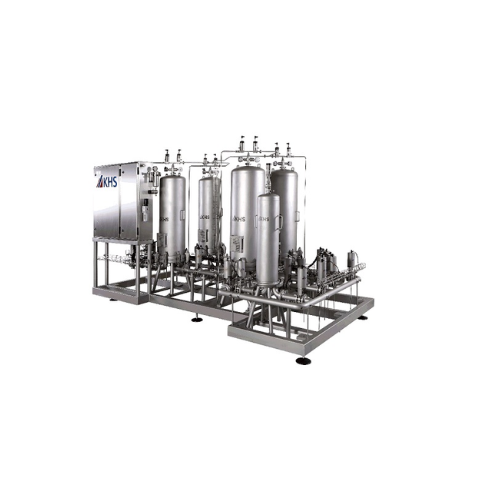
Multifunctional filter system for beverages and gases
Achieve precise filtration across multiple beverage and gas mediums...
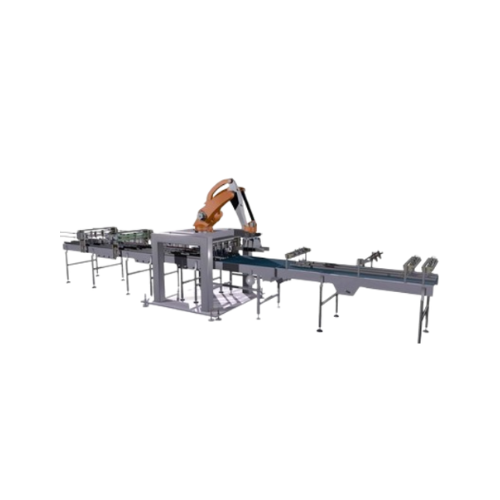
High-performance distribution and combining system
Streamline your packaging operations with a versatile system designed ...
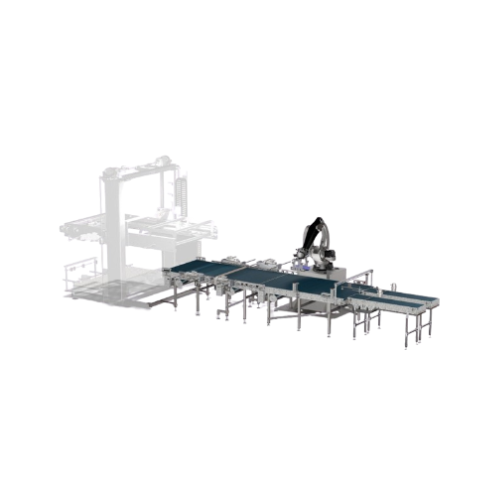
Robotic layer grouping system for container distribution
Streamline your packaging line with precise, high-speed containe...
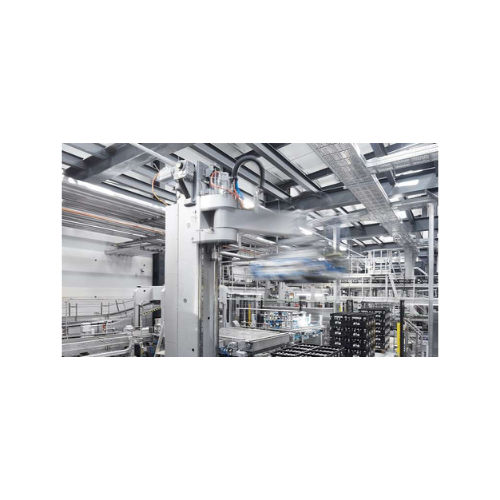
180° palletizing robot for automated palletizing and depalletizing
Optimize your production line with a versatile solut...
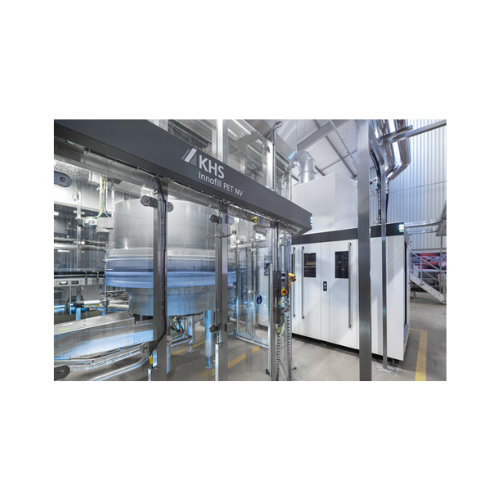
Pet bottle filler for hot and cold still beverages
Achieve high-speed precision in filling and capping for various bevera...
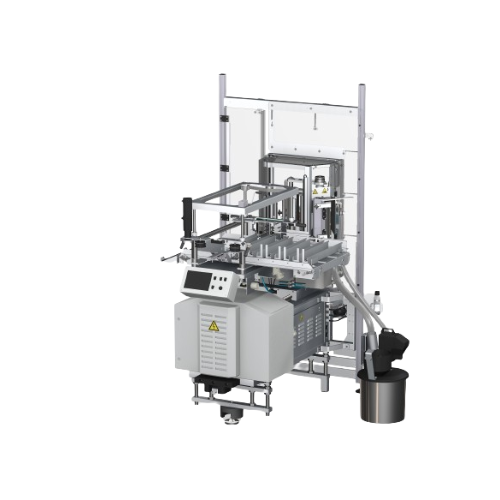
Modular labeling system for beverage containers
Easily adapt to evolving labeling needs with this flexible system, designe...
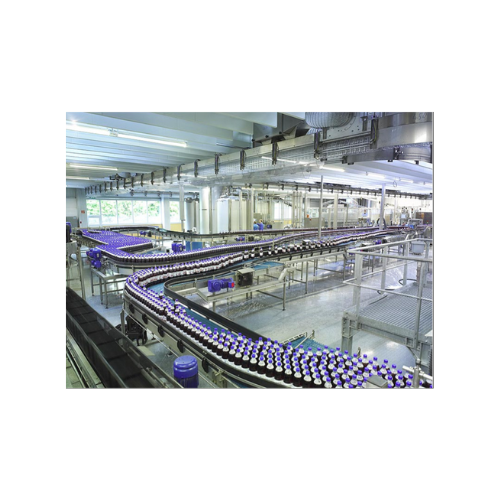
Gentle container conveyor for bottles and cans
Achieve seamless container flow with minimal noise and enhanced precision, ...
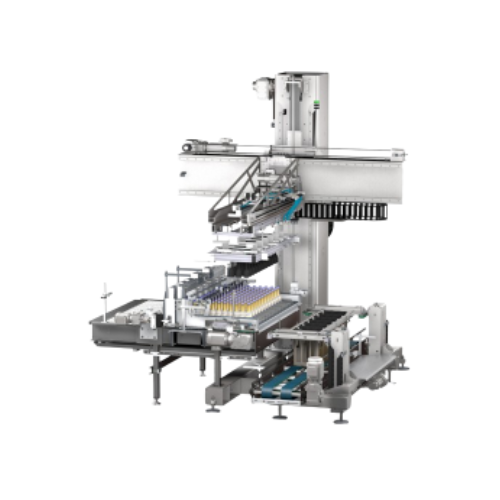
Packer and unpacker for returnable and non-returnable containers
Streamline your packaging line with a versatile machine...
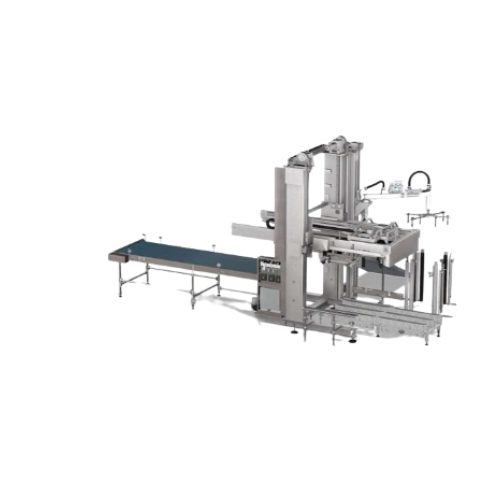
Depalletizer with accurate level compensation
Optimize your high-speed assembly line with a depalletizer designed for prec...
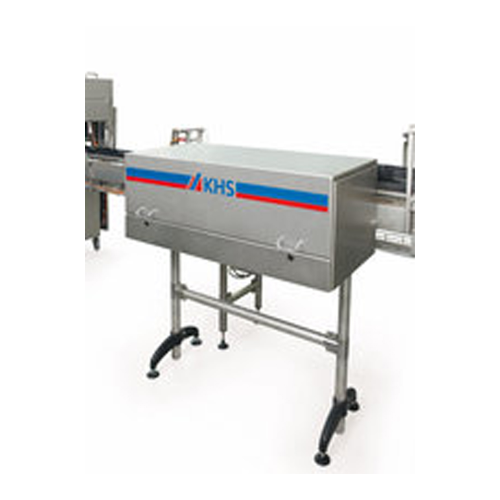
Rejection system for standing bottles and cans
Ensure seamless quality control by precisely rejecting defective bottles an...
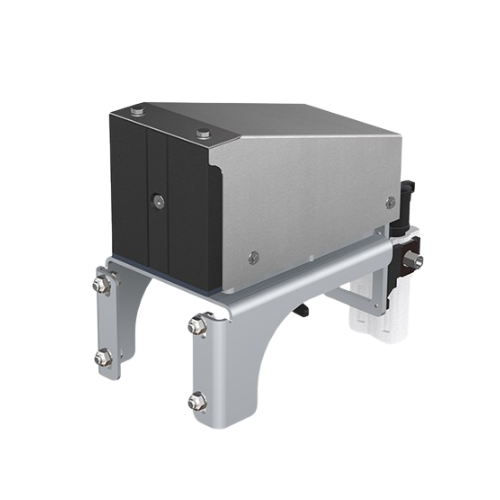
Container ejection system for Pet bottles and beverage cans
Ensure product quality by seamlessly ejecting defective cont...
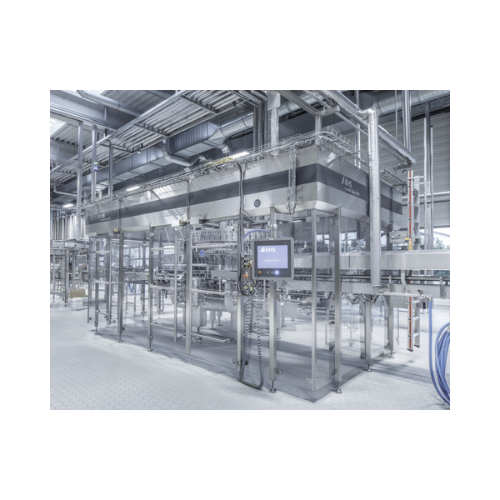
Bottle filler for beer and soft drinks in glass bottles
Achieve precision in bottling with reduced CO2 emissions and low ...
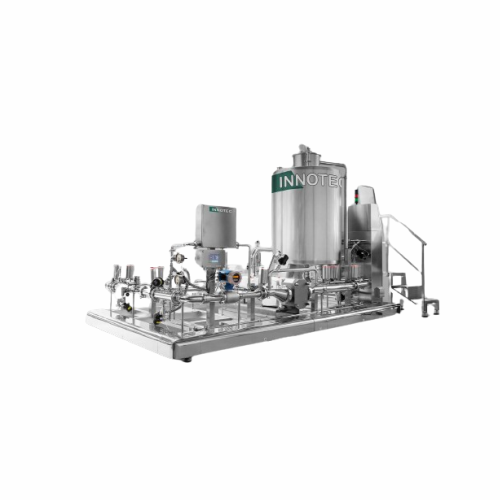
Oxygen and carbon dioxide monitoring and elimination system
Achieve precise control over dissolved gases with a system t...
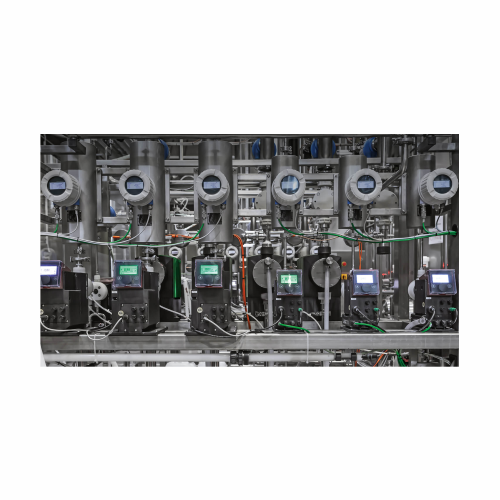
In-line additive dosing systems for beverages
Ensure precision and safety in beverage production by integrating in-line do...
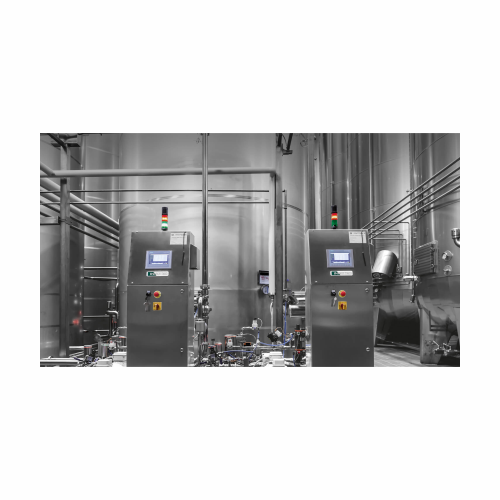
Piping discharge system for product separation in transfer lines
Optimize your beverage production by preventing product...
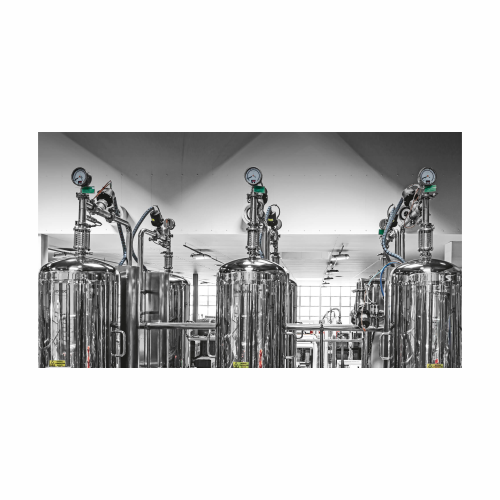
Micro-filtration system for beverage industry
Achieve microbiological stability at cold temperatures with our micro-filtra...
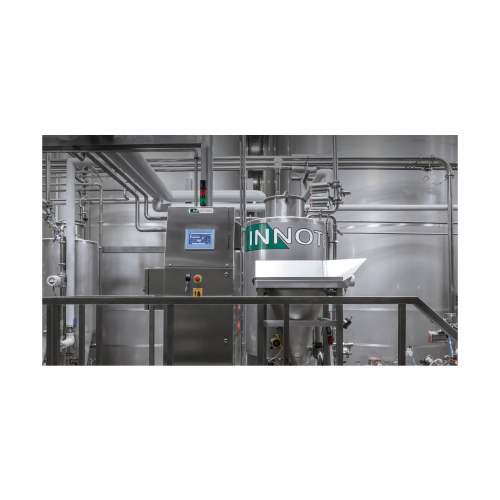
Powder mixing system for beverage industry
Enhance your beverage production with an advanced powder mixing system that ens...
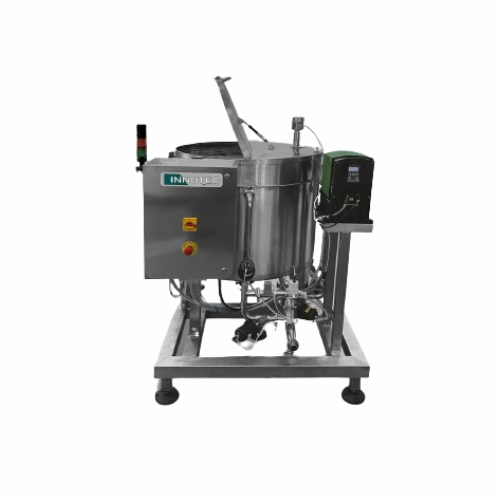
Wine recovery system for bottling processes
Streamline bottling operations by recovering and re-dosing valuable wine, redu...
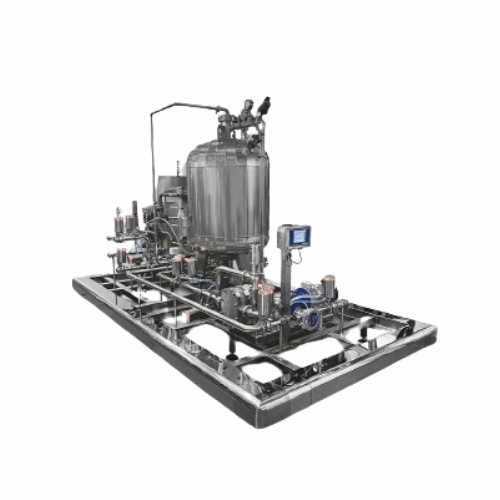
Co2 dosing system for effervescent beverage bottling
For beverage manufacturers requiring precise carbonation, this solut...
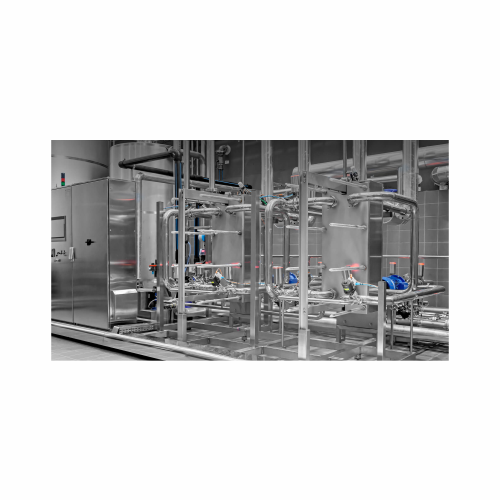
Automated system for cleaning in place (cip)
Ensure thorough, efficient cleaning of your production equipment with a syste...
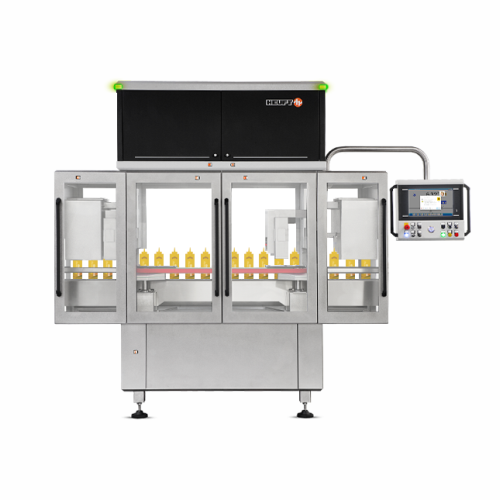
Leak detection system for plastic containers
Ensure product integrity and prevent costly recalls with this advanced system...
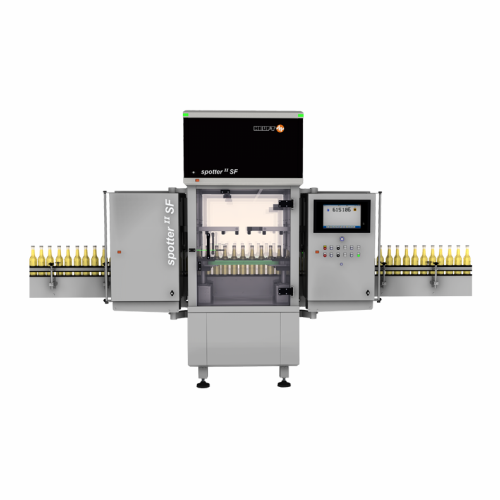
Full container inspection for glass and Pet bottles
Ensure the highest product quality by detecting foreign objects and m...
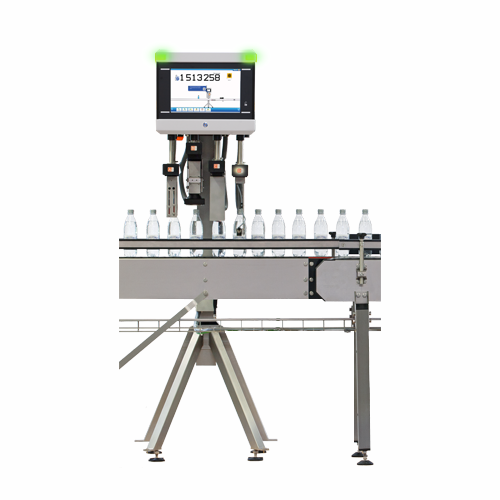
Fill level and closure inspection system
Ensure precise fill levels and secure closures in high-speed liquid packaging envi...
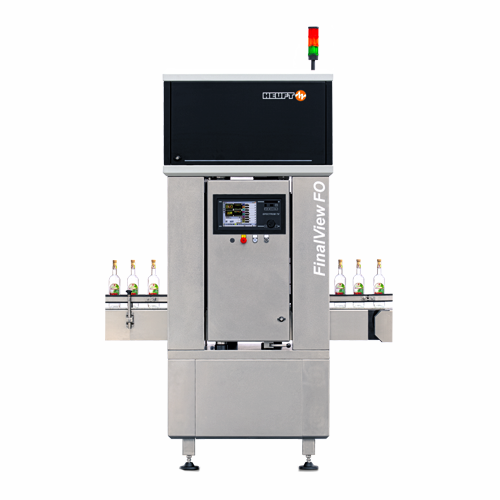
Final container inspection for beverages
Ensure flawless product presentation and secure branding by detecting misaligned l...
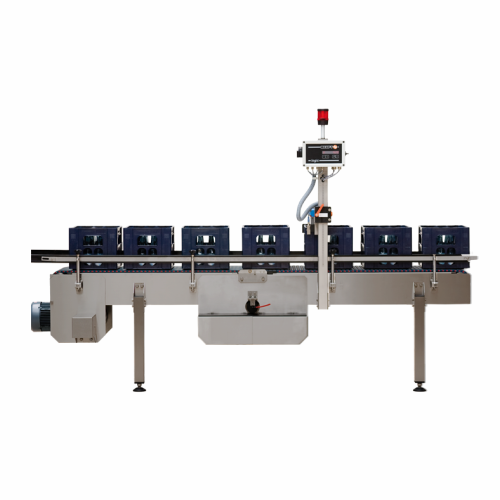
Full case check for beverage production lines
Ensure complete packaging integrity by detecting and removing cases with mis...
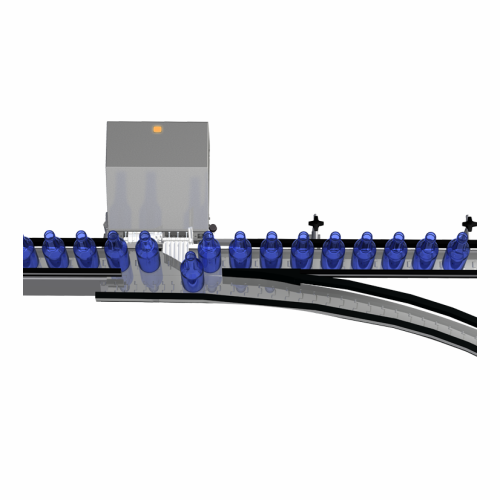
Curve rejector for beverage containers
Ensure seamless and upright rejection of faulty containers in tight spaces, maintain...
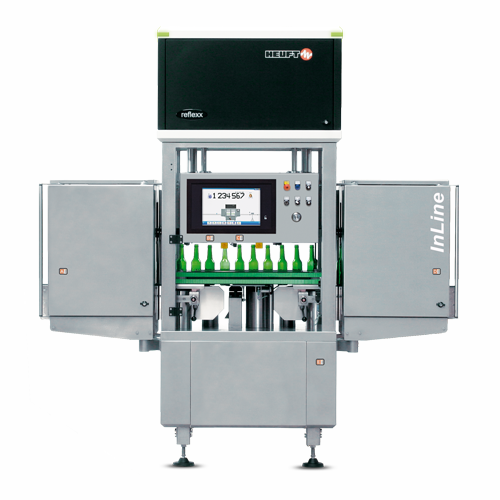
Empty bottle inspection for beverages
Ensure high quality control and prevent contamination in beverage production lines wi...
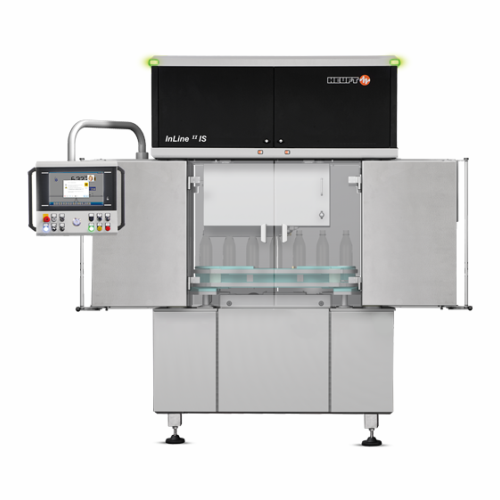
Empty bottle inspector for beverage industry
Ensure flawless quality control by thoroughly inspecting empty bottles for de...
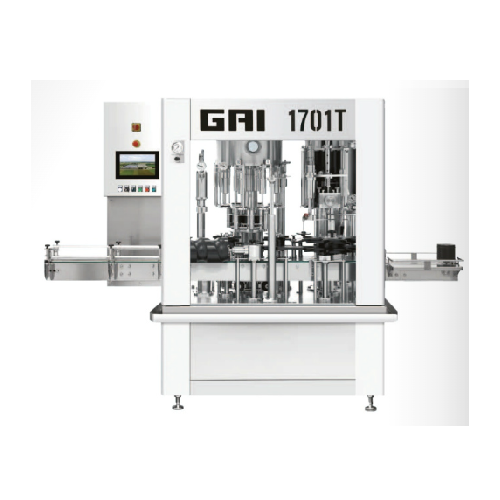
Complete bottling lines for beverage industries
Optimize your bottling process with high-speed, precision-engineered lines...
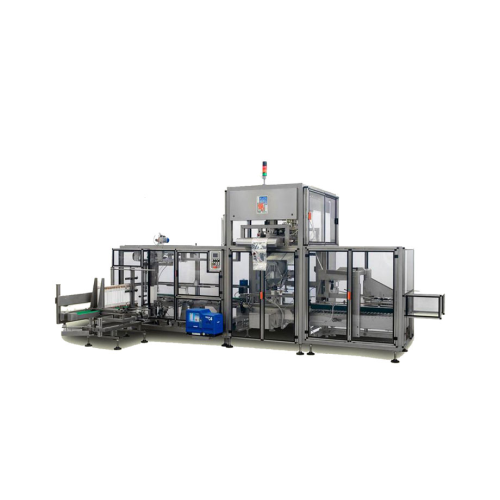
Ultra hygienic filler for non-aseptic products
Optimize your production with high-speed filling and sealing of liquid prod...
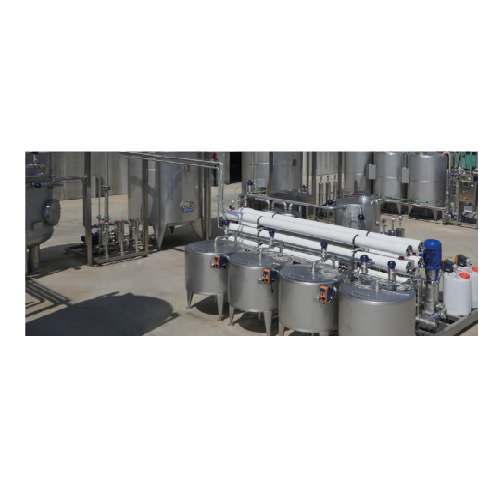
Reverse osmosis with remineralization for drinking water production
Enhance your beverage production with precise water...
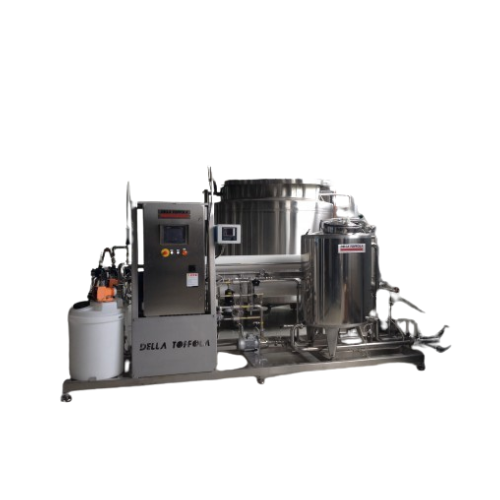
Nanofiltration systems for water pretreatment
Achieve precise water quality with advanced nanofiltration systems designed ...
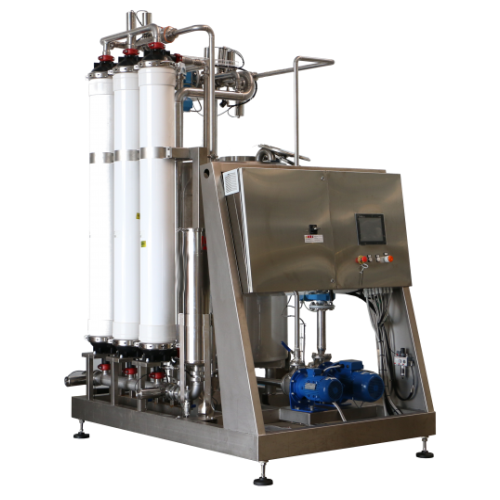
Organic ultrafiltration for water bottling lines
Optimize your beverage production with efficient pre-treatment, ensuring ...
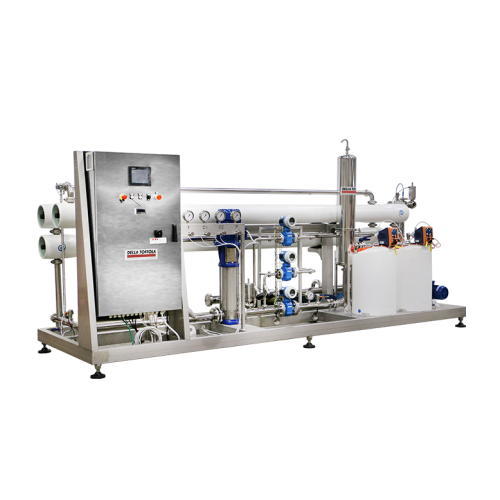
Reverse osmosis systems for industrial water treatment
Achieve optimal water purification in beverage production lines wi...
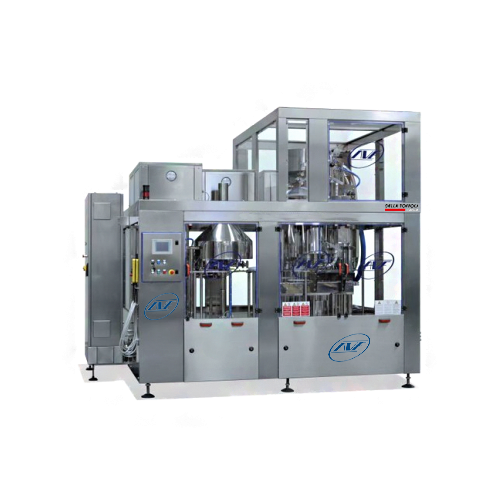
Electronic filling system for non-carbonated beverages
Optimize your bottling process with precision filling technology t...
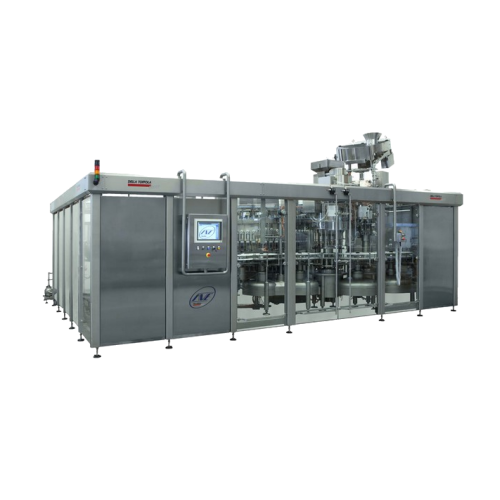
Isobaric filling solution for carbonated drinks
Achieve precision filling for carbonated and still beverages with advanced...
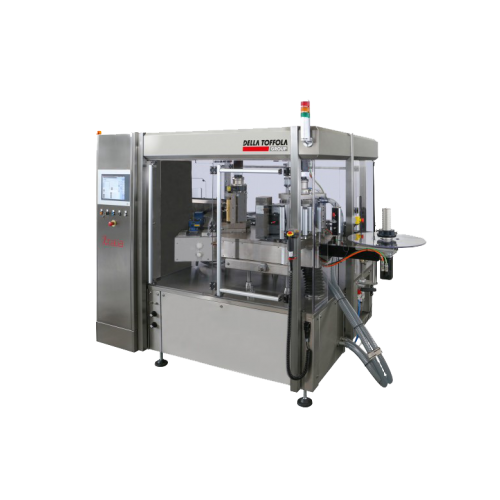
Roll linear labelling machines for bottling and packaging
Achieve precise and efficient labeling with roll linear labell...
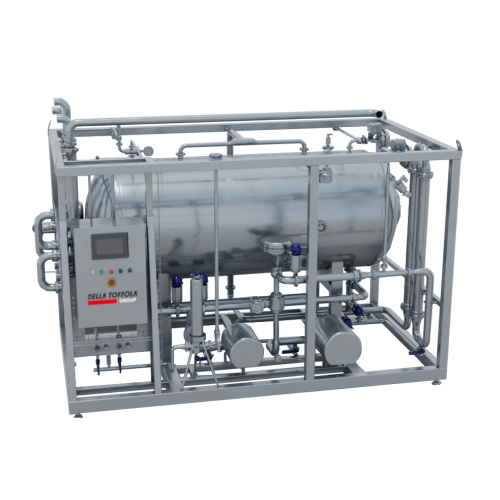
Inline carbonation solution for beverages
Achieve precise carbonation control and consistency in your beverage production ...
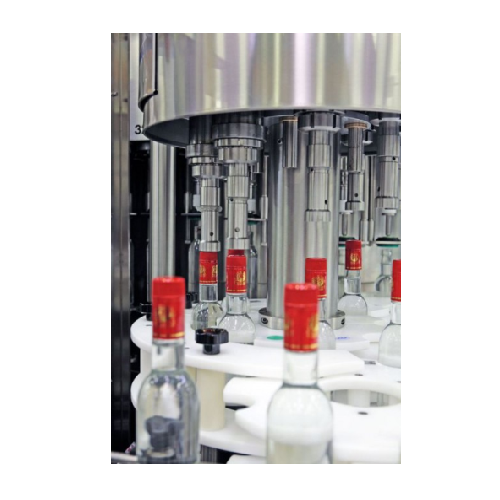
Press-on capping system for bottles
Ensure precise and secure closure of various bottle types with our versatile press-on c...
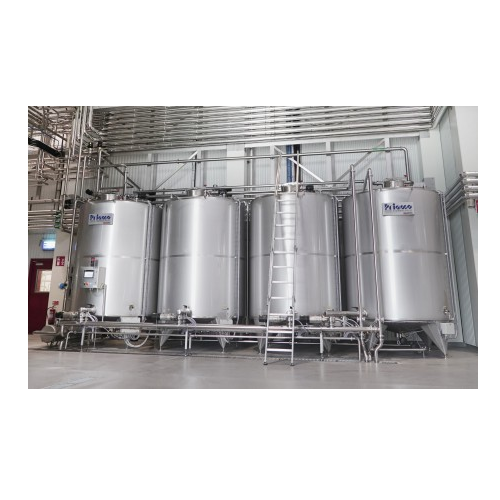
Automated Cip systems for beverage and food industry
Ensure high hygiene standards in your production line with advanced ...
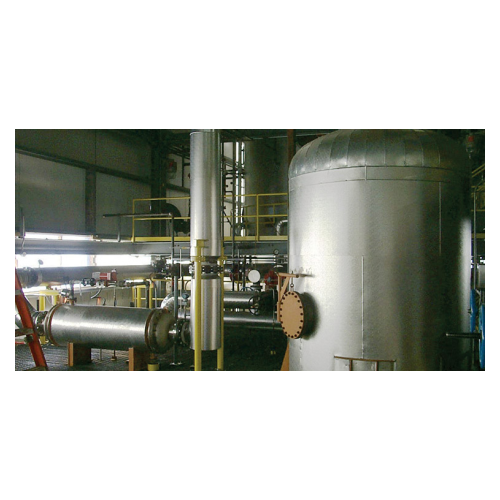
Zero effluent discharge system for solvent extraction plants
Eliminate wastewater in your solvent extraction process whi...
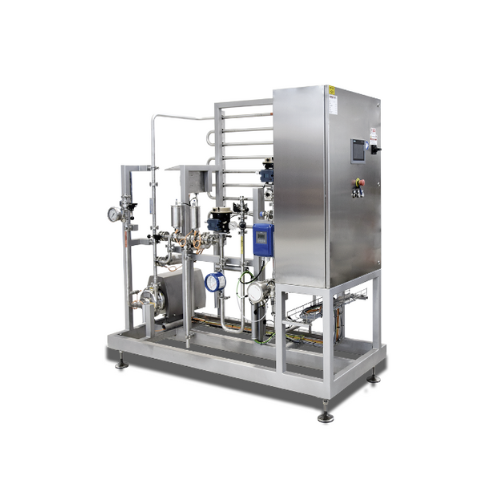
Saturation unit for carbonating beverages
Elevate your beverage production with continuous carbonation, ensuring precise g...
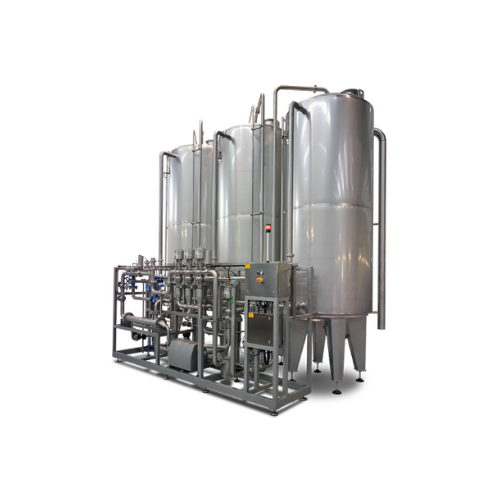
Cleaning solution tanks for beverage production
Achieve superior internal cleaning of beverage containers with our advance...
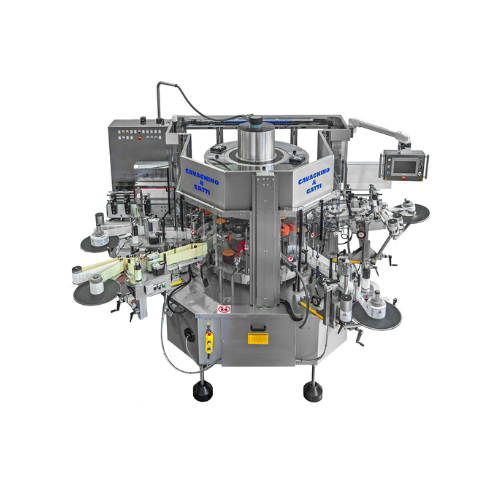
Self-adhesive labelling system for bottles
Enhance your bottling line with a versatile labelling system that supports medi...
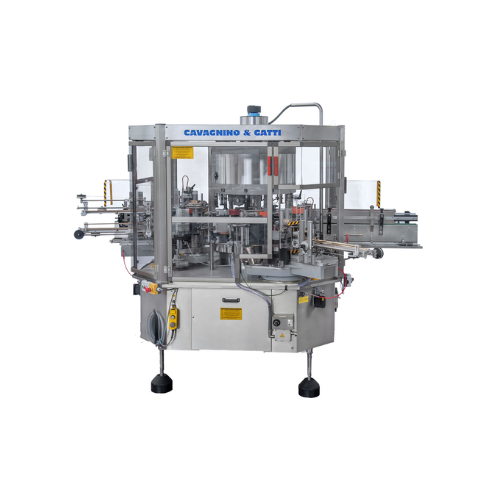
High-speed wet glue labelling system
Ensure precise labelling on diverse bottle types with our versatile rotary labelling s...
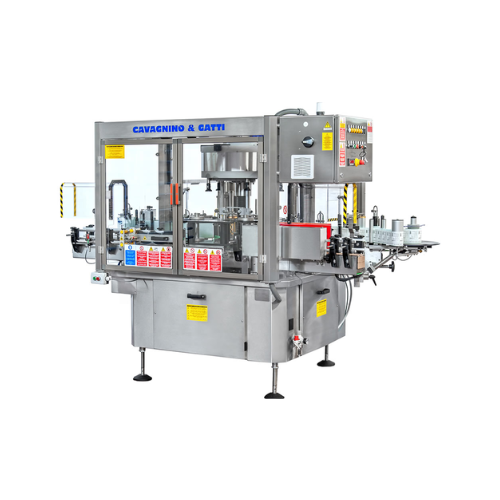
Compact combined labelling solution for bottling lines
Optimize your bottling line with a versatile, compact labelling so...
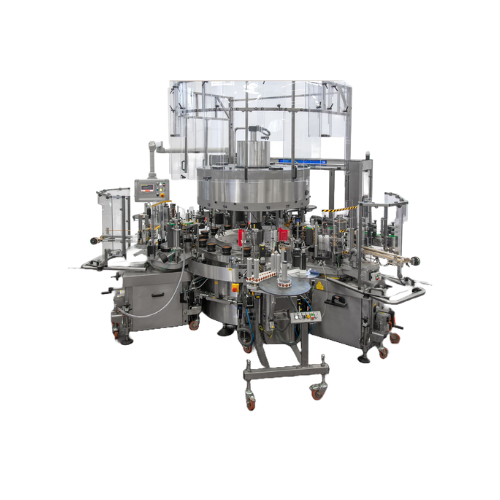
Combined wet glue and self-adhesive labeling system
Achieve seamless labeling with combined wet glue and self-adhesive te...
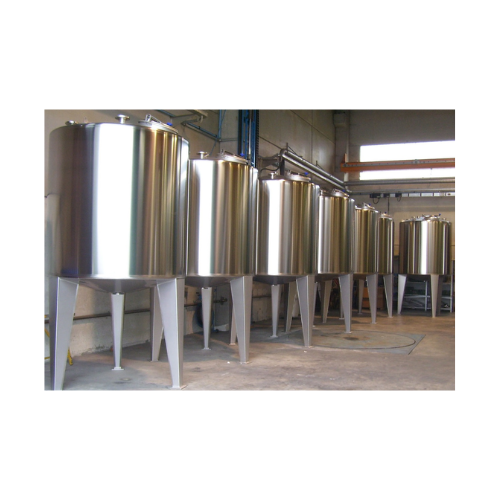
Storage tank for dairy products and juices
Designed for optimal preservation and hygiene, these storage tanks prevent sedi...
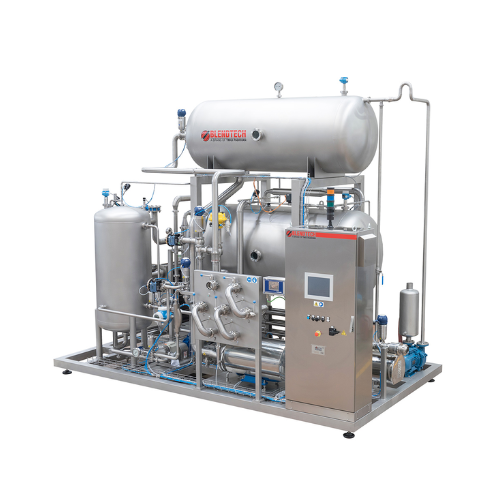
Premix system for soft drinks production
Efficiently produce both carbonated and non-carbonated beverages by integrating th...
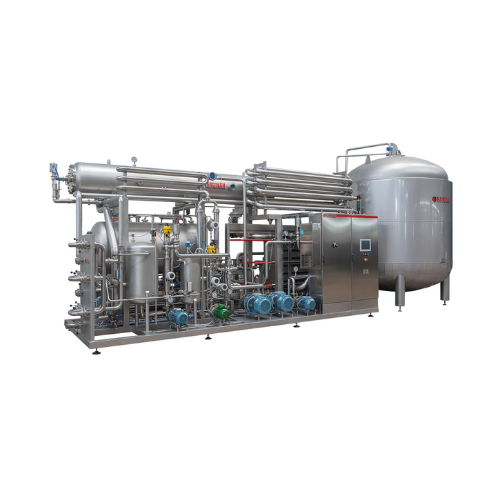
Mixer-pasteurizer-carbonator for soft drinks and juices
Optimize your beverage production with a versatile system that se...
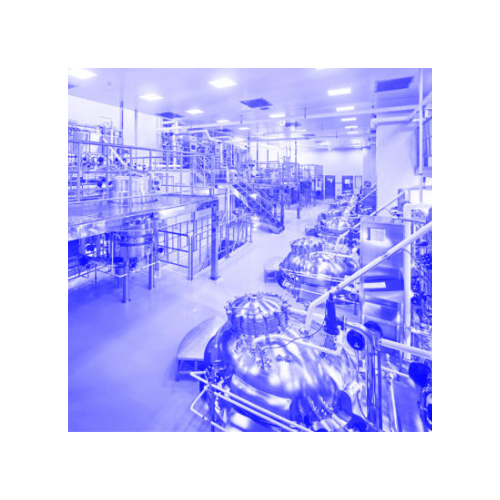
Bioreactors for cell culture processes
Efficiently cultivate sensitive cell lines with customizable bioreactors designed to...
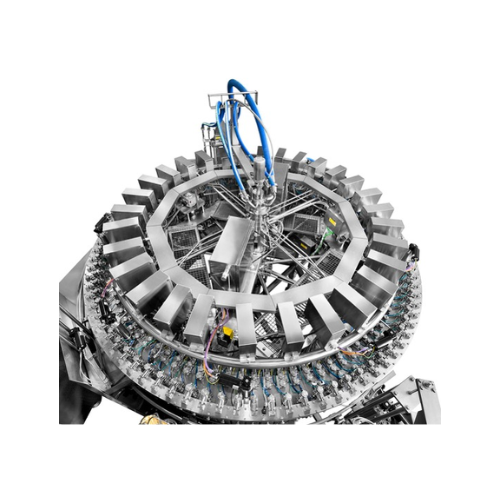
No-oxygen filler for wine bottling
Enhance liquid bottling with seamless integration that minimizes oxygen exposure, ensuri...
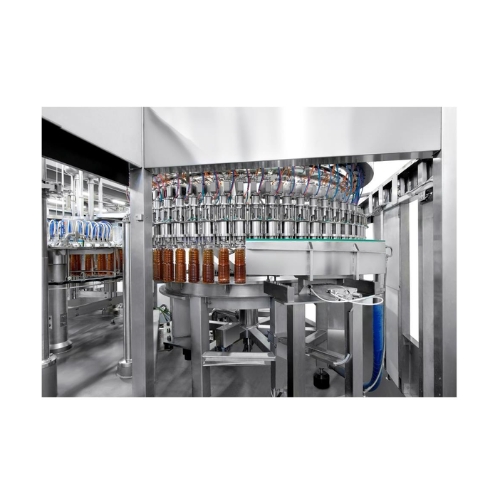
High-capacity no-oxygen wine filler
Ensure optimal flavor retention and prevent oxidation in your bottling process with adv...
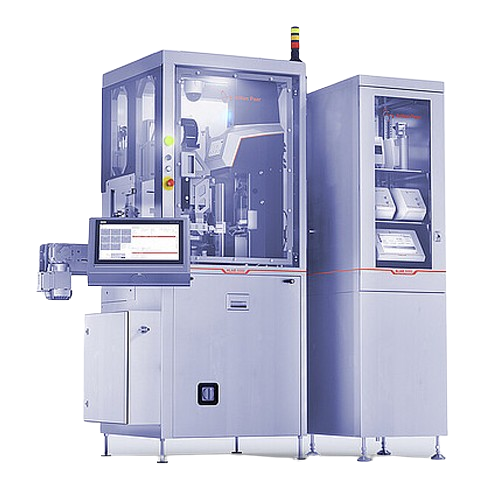
Automated quality control for beverage packaging
Streamline beverage quality control with 24/7 automated analysis, ensurin...
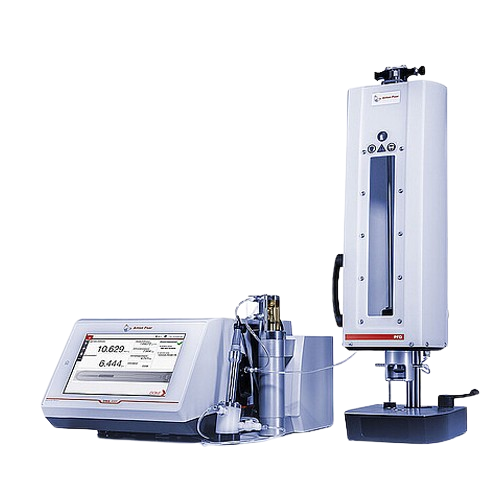
Co2/o2 beverage filling device
Ensure precise beverage analysis by maintaining carbonation integrity with a system that tran...
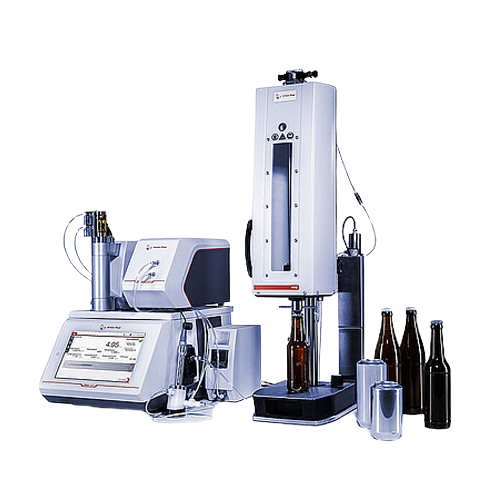
Packaged beverage analyzer for alcohol and Co2
Ensure precise beverage analysis with a streamlined solution that integrate...
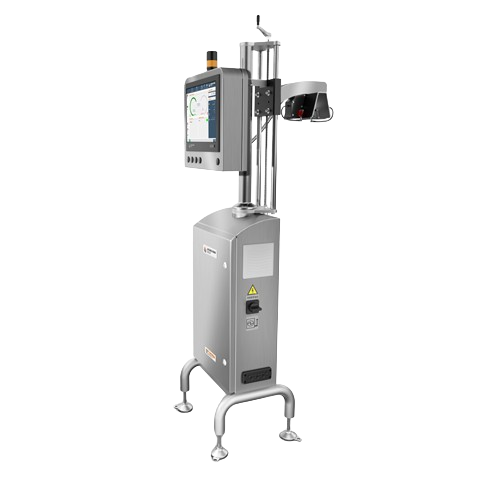
In-line leakage detection for sealed water bottles
Ensure the integrity of your bottled beverage products with reliable i...
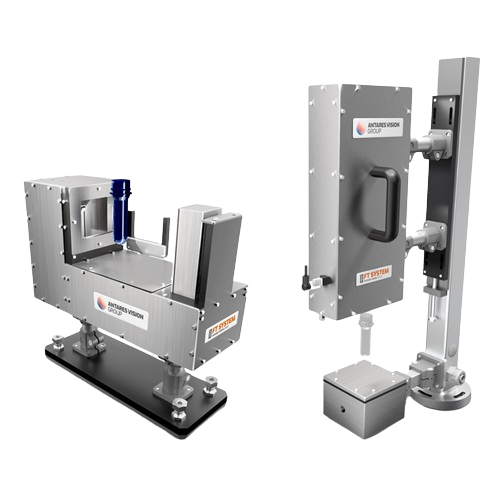
Preform inspection system for blown containers
Ensure defect-free blown containers and minimize line jams with a robust pr...
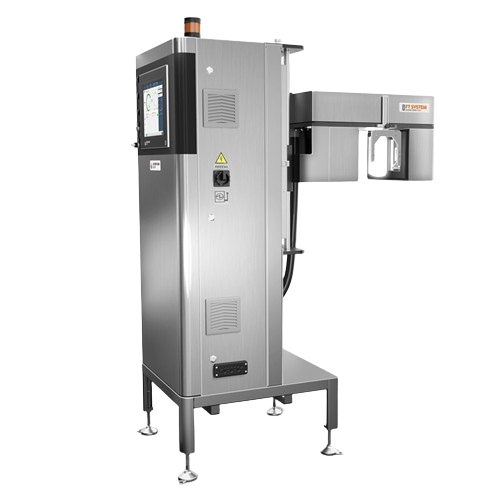
Code inspection system for beverage industry
Ensure accurate labeling and avoid costly recalls with a high-speed code insp...
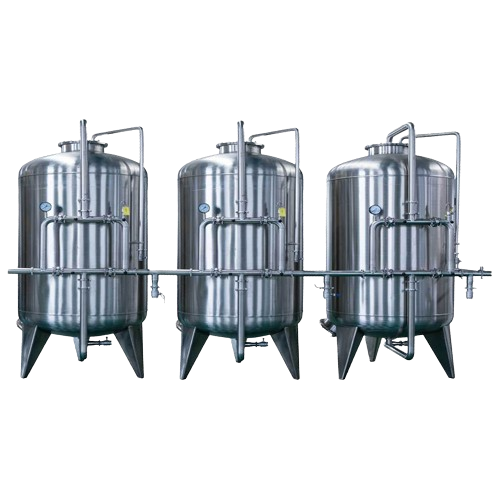
Water treatment multi medium filter tank
Ensure your bottled water’s purity with a multi medium filtration system tha...
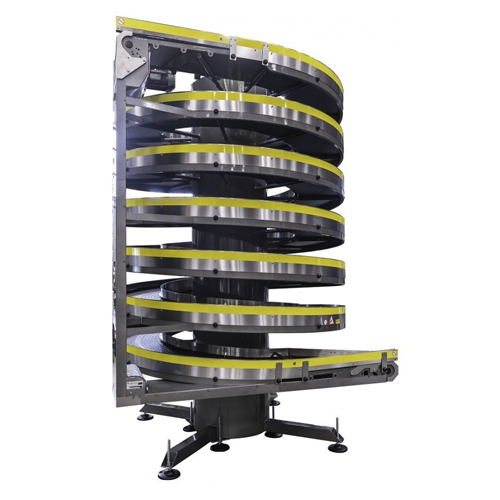
Spiral conveyor for individual bottles and cans
Streamline your production line’s space and layout with a compact co...
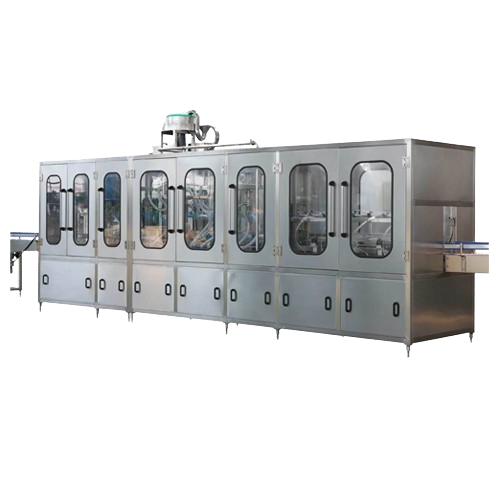
Linear big bottle water filling solution
Streamline your large-format water bottling process with integrated washing, filli...
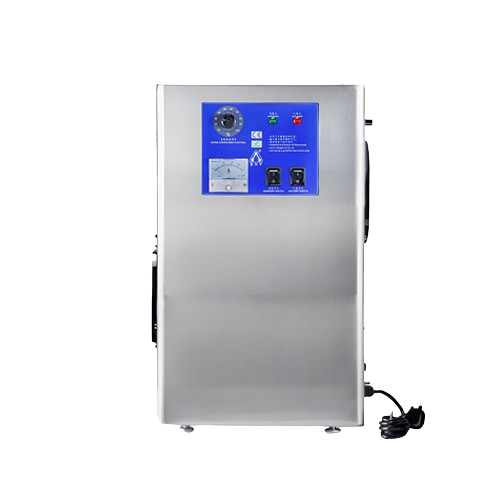
Ozone generator for water sterilization
Ensure the purity and safety of your water products with an ozone generator that ef...
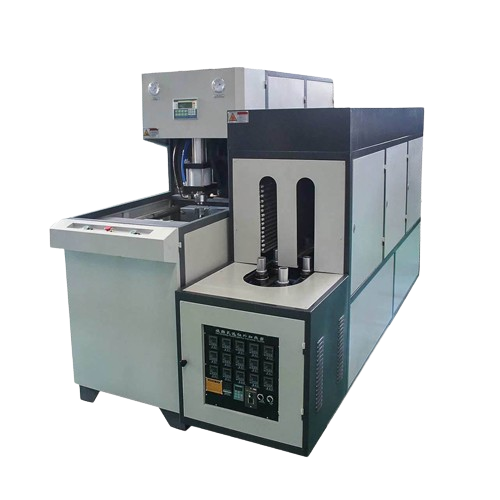
Semi-automatic Pet bottle blow molding solution
Optimize your production with precise and efficient blow molding for creat...
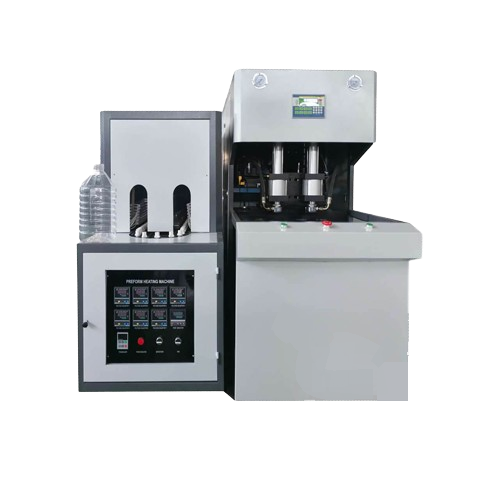
Semi automatic Pet bottle blow molding for 5l bottles
Maximize production efficiency by precisely forming PET containers ...
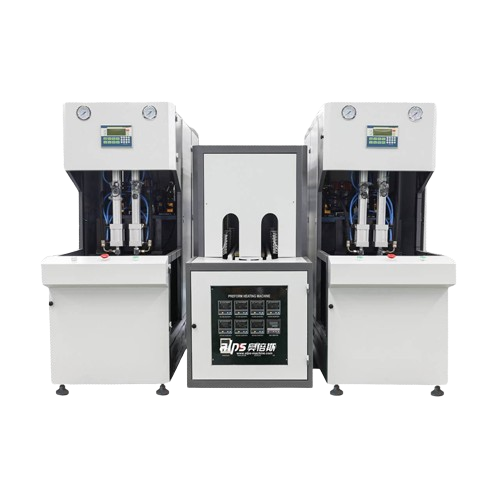
Semi automatic Pet bottle blow molding solution
Streamline your production with a semi-automatic solution designed for eff...
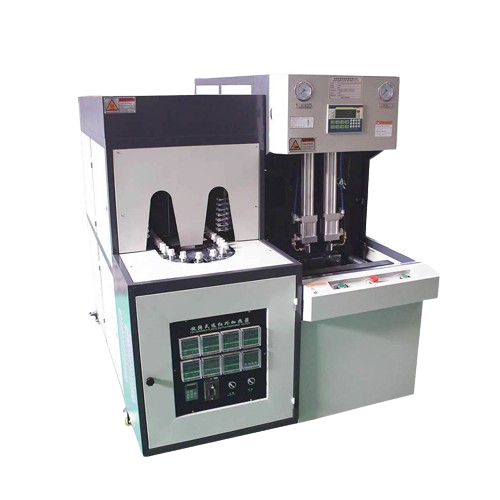
Semi automatic Pet bottle blow molding system
Enhance your production efficiency with a versatile blow molding system that...
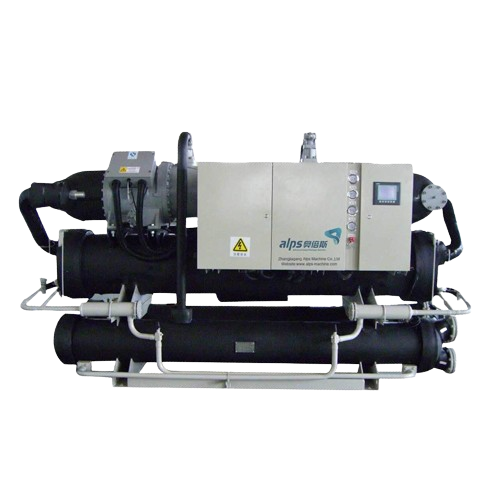
Water cooled screw chiller for industrial cooling
Optimize your beverage production line with precise temperature control...
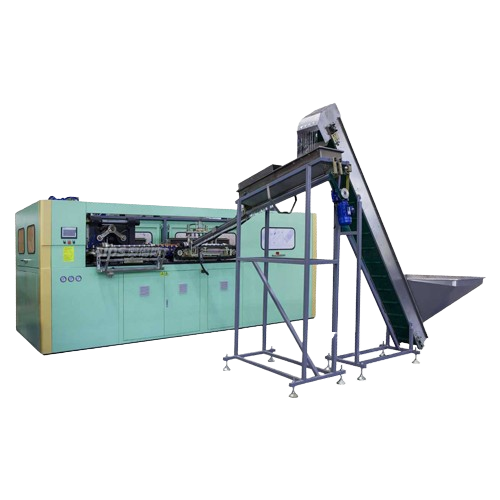
Automatic Pet bottle blowing solution
Achieve precise PET bottle molding with high-speed, automated operations that seamles...
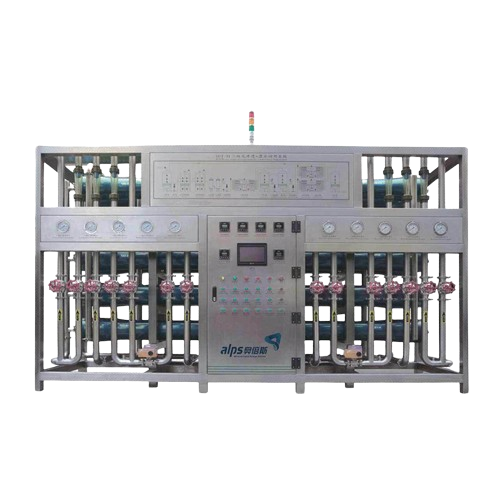
Automatic reverse osmosis water treatment plant
Ensure high-purity water by seamlessly integrating this reverse osmosis tr...
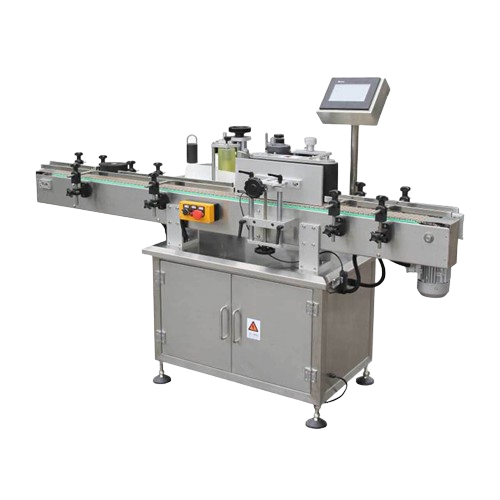
Automatic single side adhesive labeling solution
Streamline your packaging line with precision; this solution offers effic...
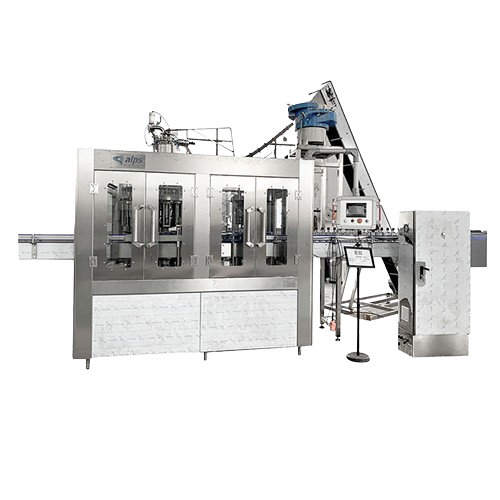
Glass bottle carbonated soft drink washer, filler, and capper
Streamline your bottling process with this machine that se...
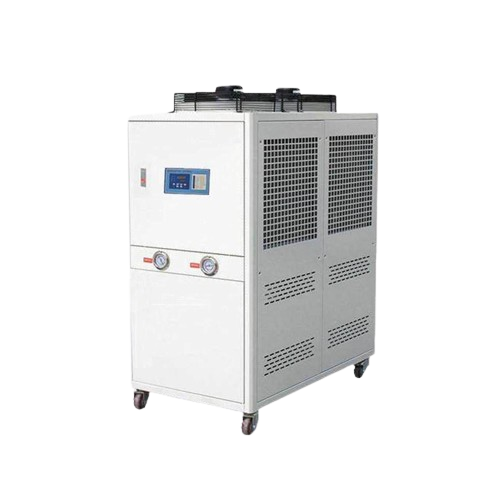
Industrial air cooled chiller for carbonated beverages
Optimize your beverage production with precise temperature control...
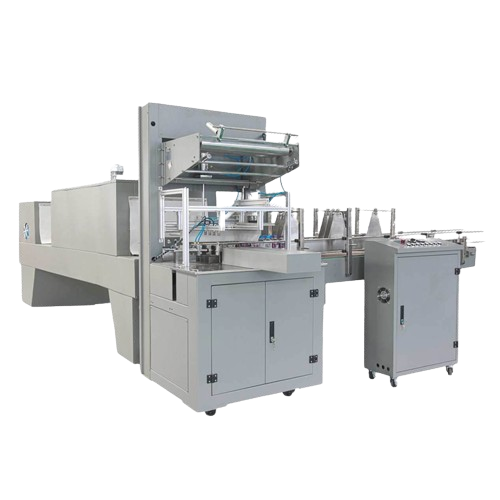
Automatic beverage bottle shrink packaging solution
Optimize your beverage packaging process with advanced shrink wrappin...
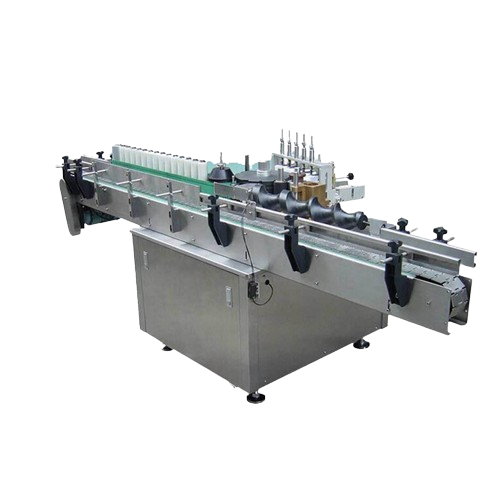
Automatic bottle cold glue labeling solution
Achieve precise labeling for diverse container types, enhancing your producti...
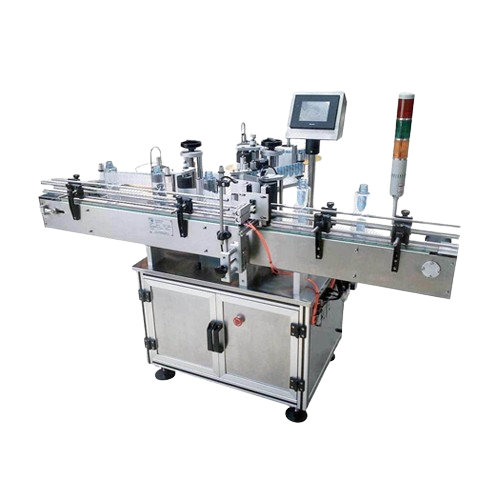
Automatic bottle self adhesive labeling solution
Enhance your production line with precision labeling for diverse containe...
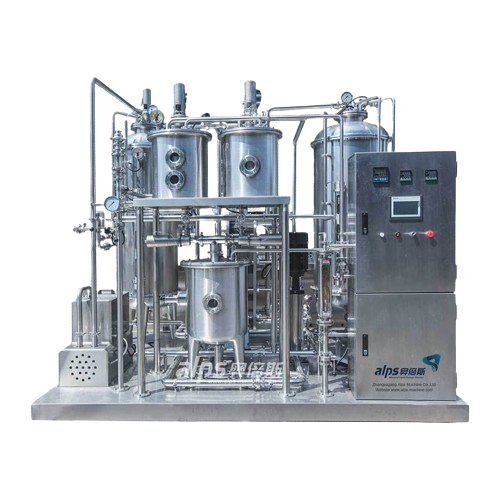
Automatic carbonated beverage mixing system
Optimize your beverage production by ensuring precise carbonation and mixing w...
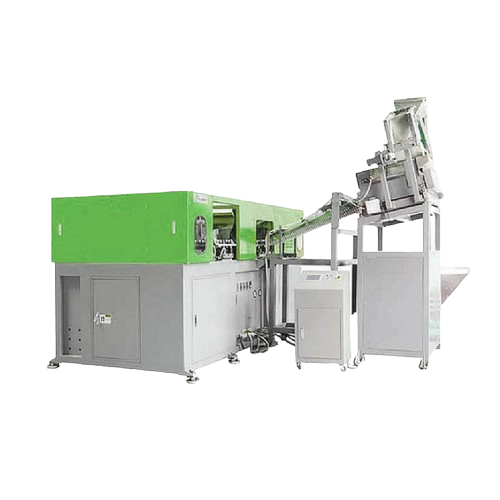
Automatic servo Pet bottle blower
Elevate your production capabilities with a PET bottle blowing machine designed for high-...
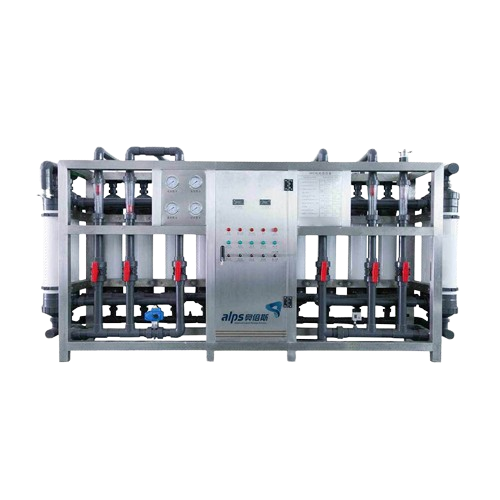
Ultra filtration water treatment system for drinking water
Achieve exceptional water purity with advanced hollow fiber u...
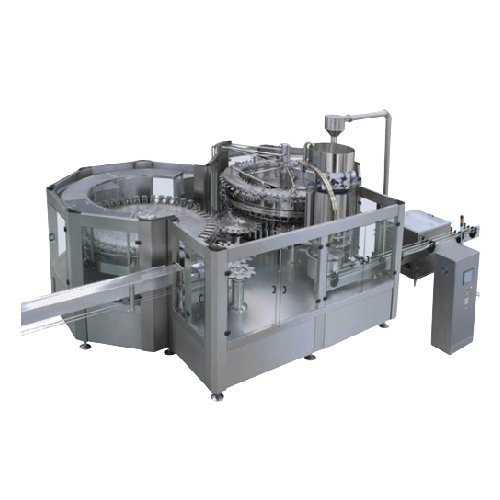
High-capacity carbonated drink filling system
Optimizing your carbonated beverage production, this high-speed filling syst...
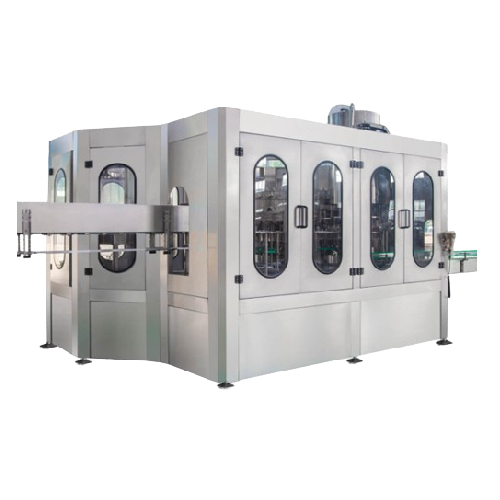
Automatic mineral water filling system
Optimize your bottling line with a machine designed for high-speed washing, filling,...
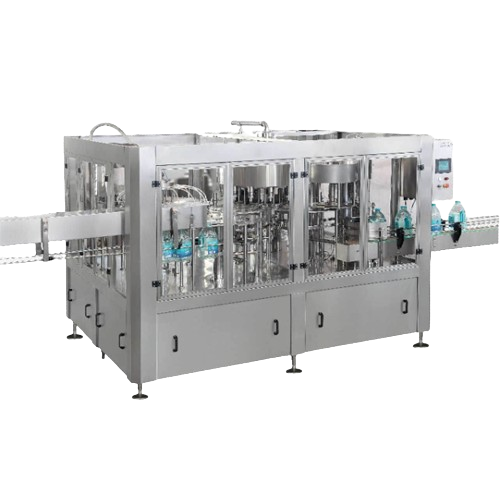
Large bottle water filling system
Streamline your bottled water production with an integrated solution that efficiently was...
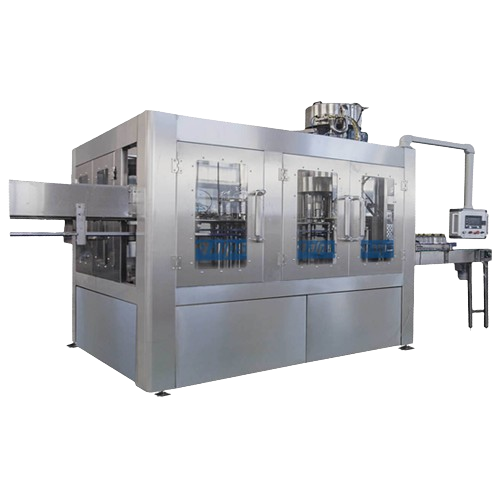
Automatic mineral water filling system
Enhance your bottling line with an advanced solution that seamlessly integrates wash...
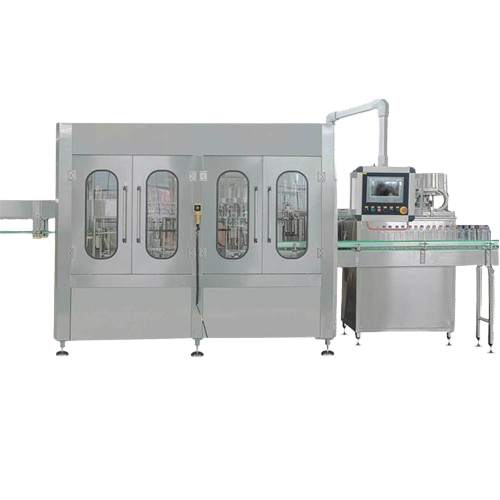
Carbonated drink filling solution for Pet bottles
Optimize your carbonated beverage production with an all-in-one filling...
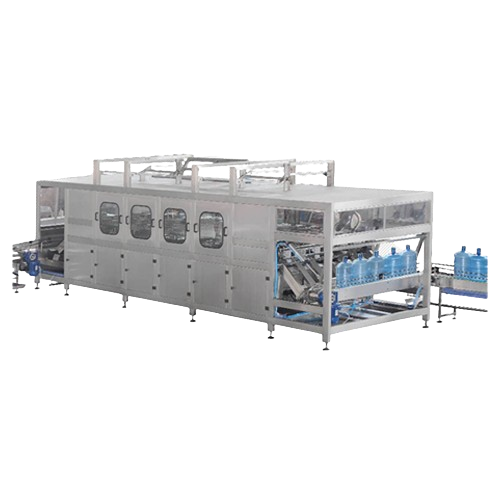
5 gallon water filling system
Streamline your bottling process with this integrated system, expertly combining rinsing, fill...
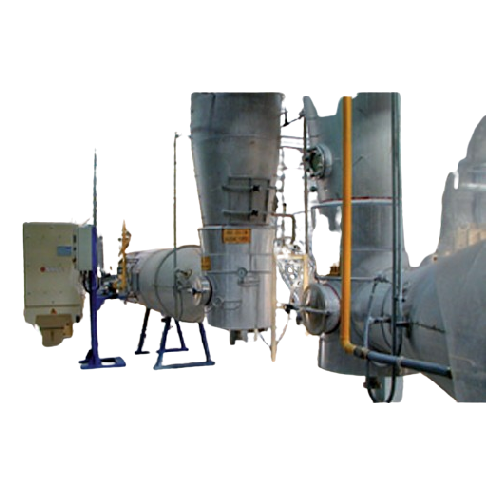
Dryer for pigments and hydroxides
Achieve precision drying of complex suspensions and pastes into uniform powders, optimizi...
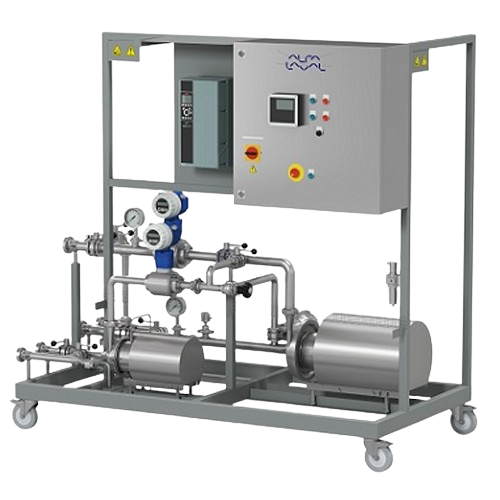
Mobile mixing system for beverages in breweries
Optimize blending and carbonation processes with a mobile solution that st...
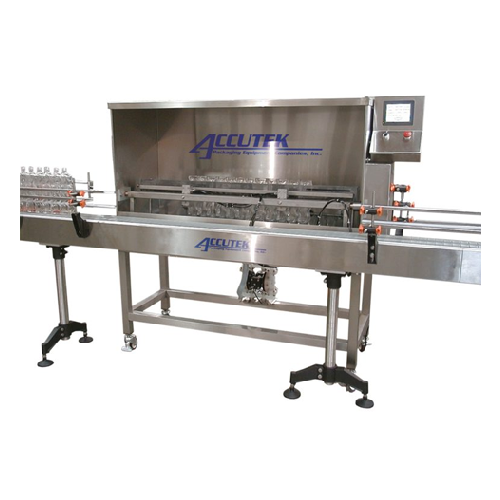
Automatic bottle washer for packaging lines
Ensure your bottles are impeccably clean and ready for filling, as this soluti...
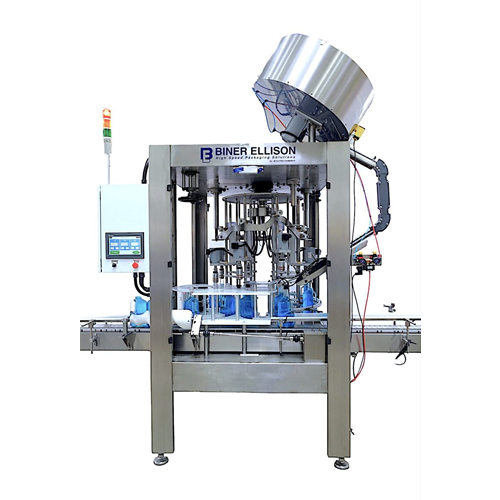
Rotary capper for high-speed bottling
Streamline your bottling process with a rotary capper designed to ensure accurate and...
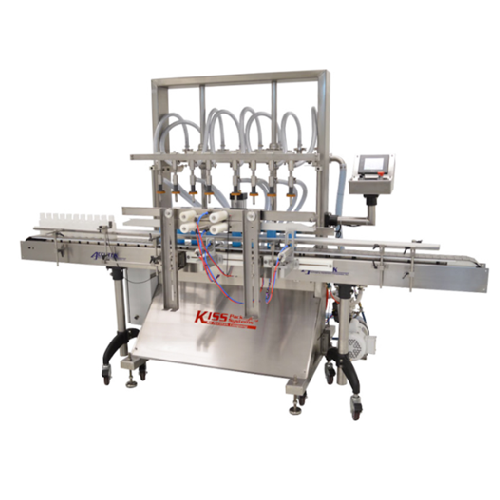
Automatic pressure overflow filler for low to medium viscosity liquids
Ensure consistent fill levels for low to medium ...
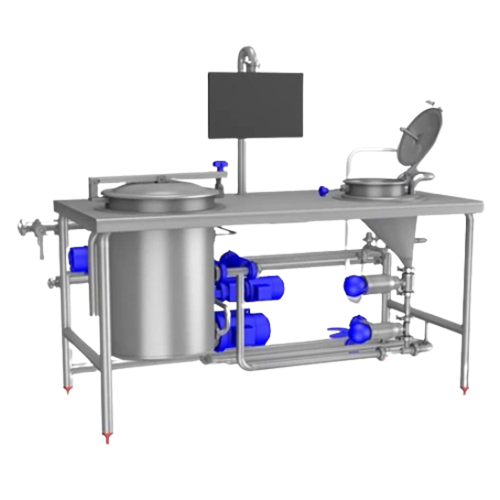
Water remineralization system for mineral and flavored water production
Achieve precision in mineral content with a sys...
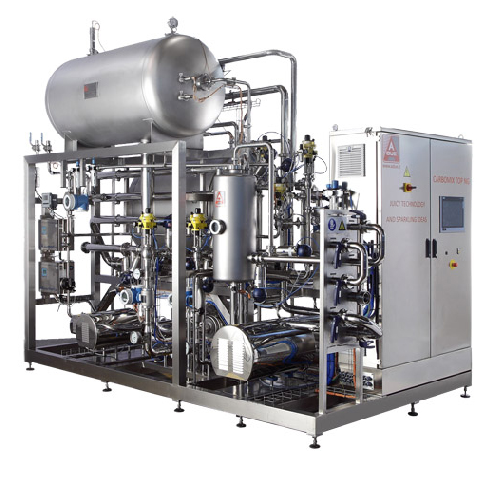
Beverage deaeration, carbonation and mixing system
Streamline your beverage production process with an efficient solution...
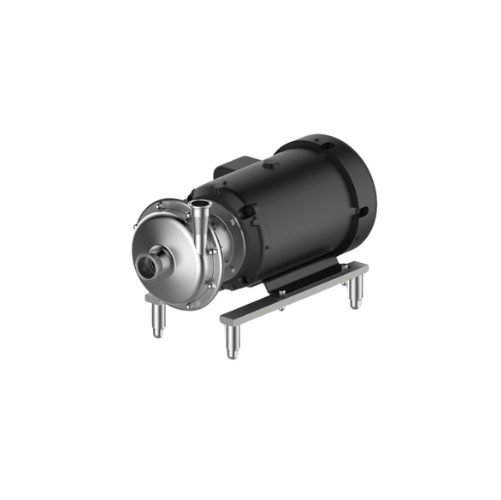
Hygienic centrifugal pump for beverage applications
Ensure gentle handling and efficient transfer of sensitive liquids wi...
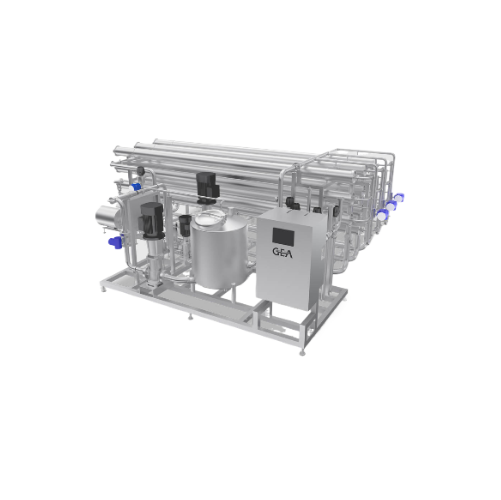
Condensate polisher for industrial water reuse
Transform waste streams into high-quality water, ready for reuse in diverse...
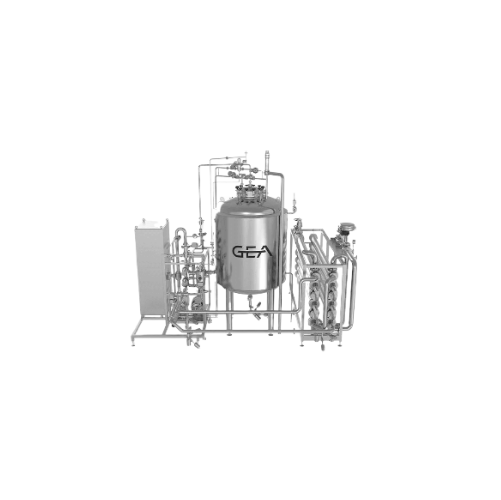
Carbonation system for non-alcoholic beverages
Achieve precise carbonation for diverse beverages with this system, ensurin...
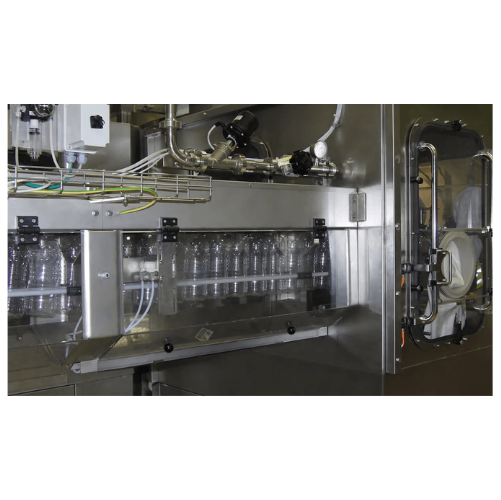
Air conveyor for empty Pet bottles
Optimize your bottling line with an advanced air conveyor that reduces energy consumptio...
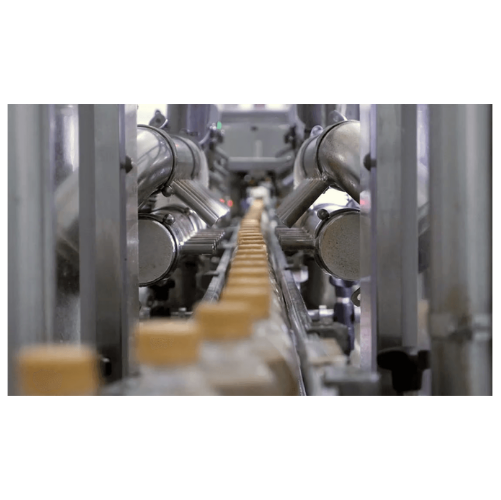
Container drying system for packaging lines
Ensure precise label applications by efficiently removing moisture from the su...
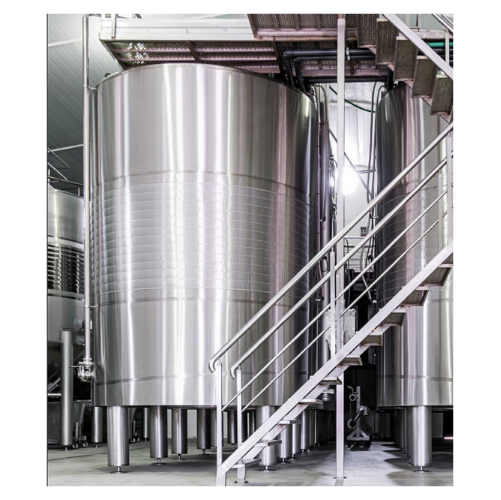
Centrifuge for beverage clarification
Elevate your beverage production with enhanced clarification, ensuring your drinks me...
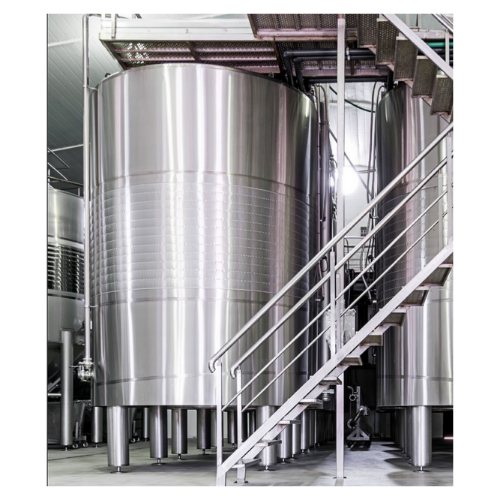
Reverse osmosis dealcoholization technology for beer
Achieve consistent flavor profiles in your non-alcoholic beer produc...
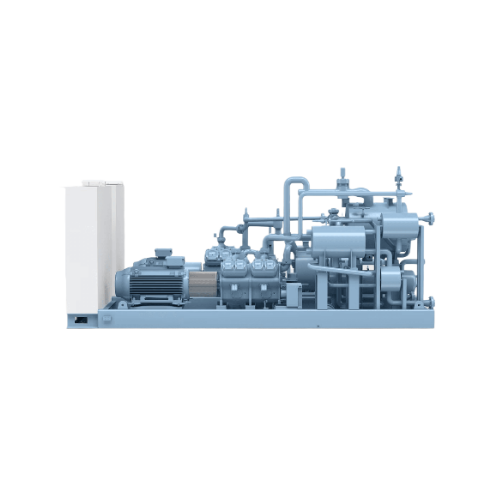
Combined heating and cooling solution
Optimize your production with a dual-purpose system designed to efficiently manage bo...
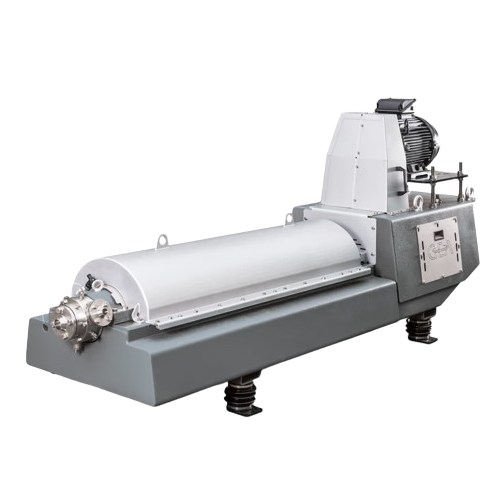
Clarifying decanter for starch recovery
Ensure optimal dewatering and separation of starch, pulp, and fibers with this high...
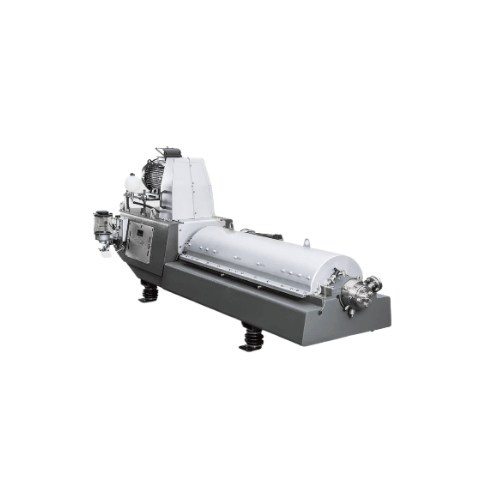
3-phase separating decanter for industrial fluids
Optimize your waste oil and oily wastewater management with a high-spee...
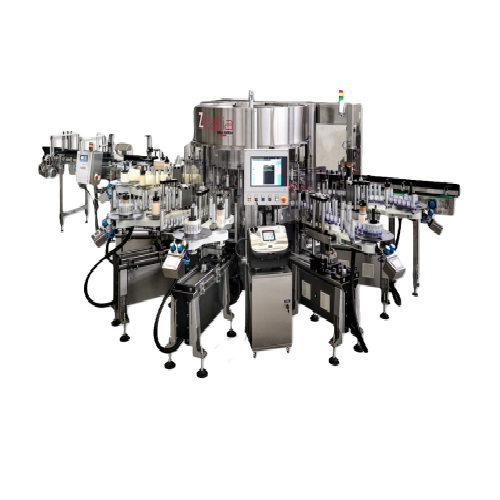
Self-adhesive label applicator for cylindrical and shaped containers
Achieve precise and high-speed labelling of variou...
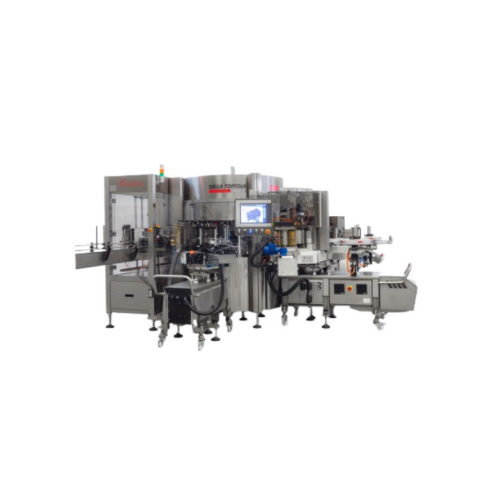
Cold-glue labeller for cylindrical or shaped containers
Achieve seamless high-speed labeling of glass, plastic, and metal...
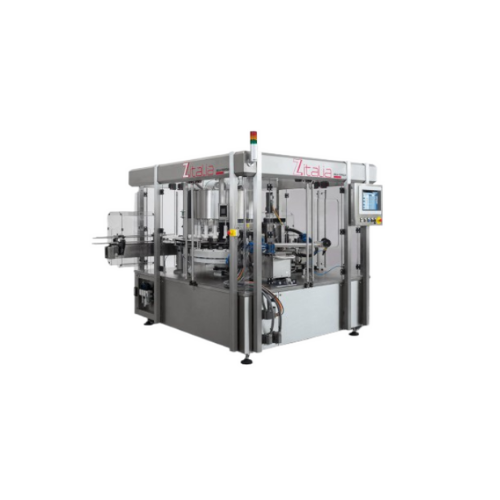
Modular and combined labeling machines for bottling
Achieve high-speed labeling with unmatched flexibility, combining mul...
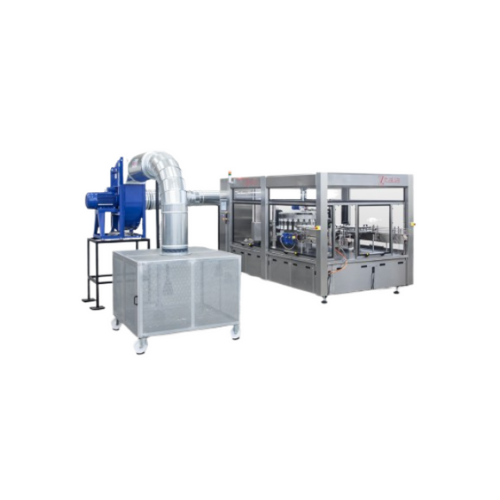
Pre-cut hot-melt label applicator for bottles
Optimize efficiency and precision in your labeling process with this advance...
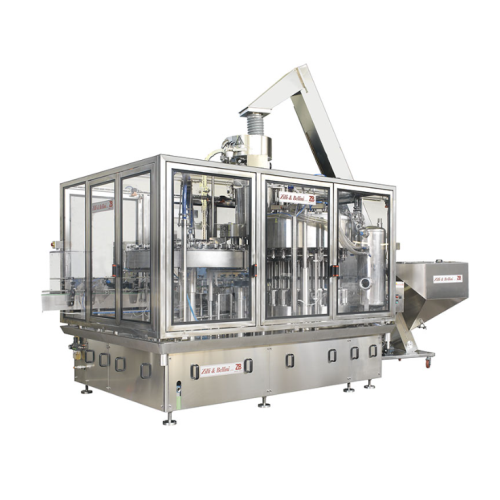
Rotary gravity fillers for diverse liquid products
Achieve precise filling and optimal packaging efficiency for a wide ra...
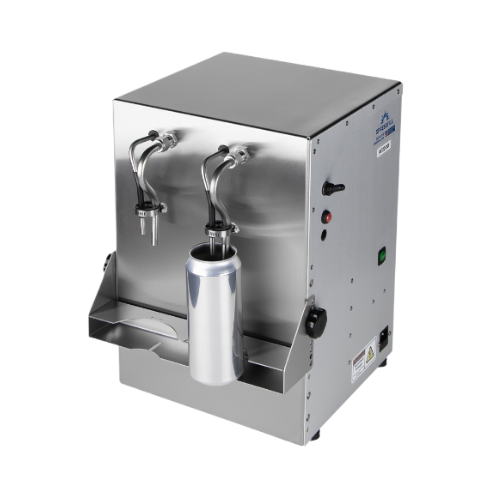
Carbonated beverage can filler for beer and kombucha
Looking to enhance your beverage production efficiency? This can fil...
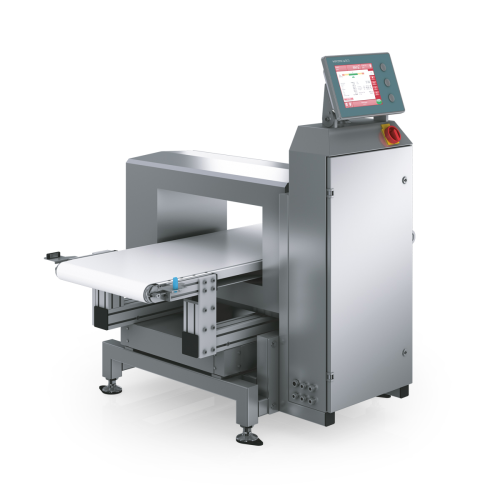
Checkweigher and metal detector for heavy loads
Streamline your inspection process by combining precision weighing with co...
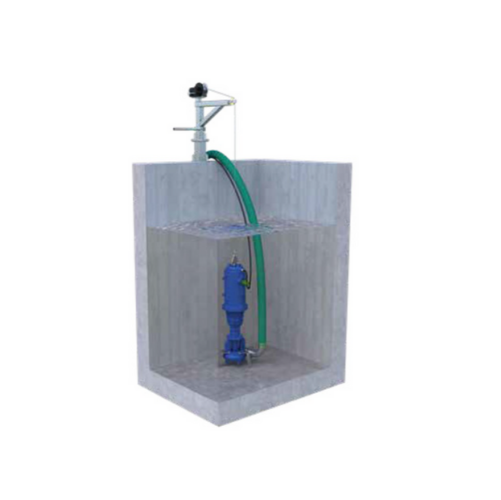
Heavy-duty submersible chopper pump for biogas plants
Effectively manage fibrous waste and prevent clogging in demanding ...
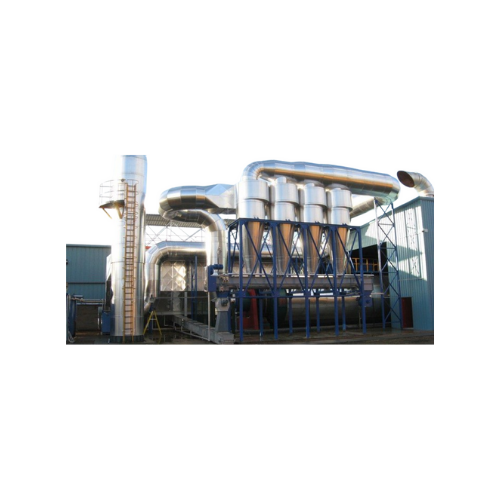
Shaftless spiral conveyor for difficult waste handling
Efficiently tackle complex waste handling challenges with a design...
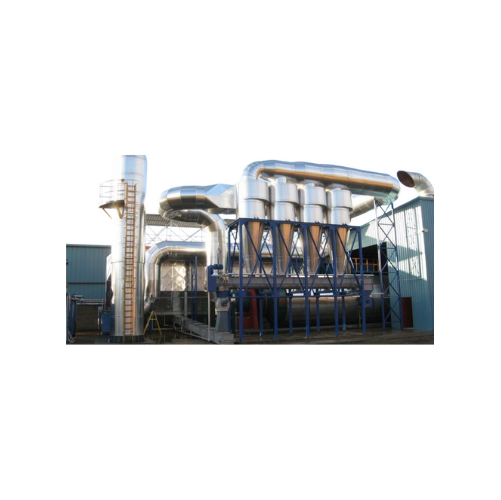
Shaftless spiral conveyor for waste water treatment
Efficiently handle challenging materials like de-watered sludge and s...
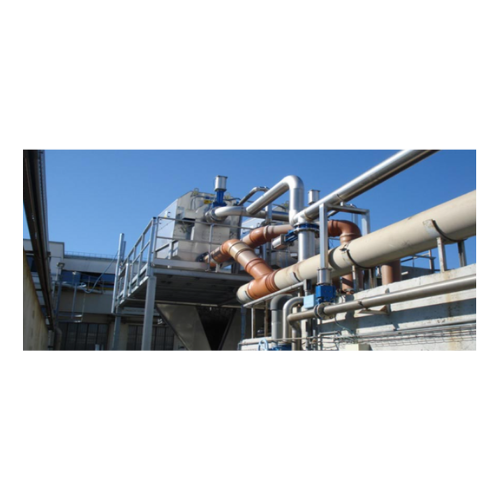
Internally fed rotating drum screen for wastewater treatment
Streamline your wastewater management with this advanced fi...
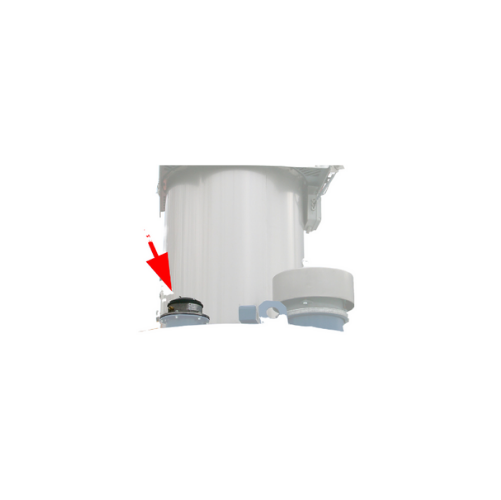
Electronic pressure meters for silo safety monitoring
Ensure precise pressure management in your systems with this advanc...
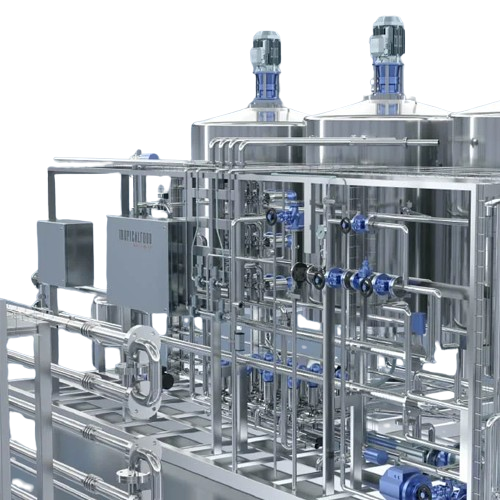
Coconut processing line for green coconut water and cream
Enhance your coconut processing with a fully automatic line th...
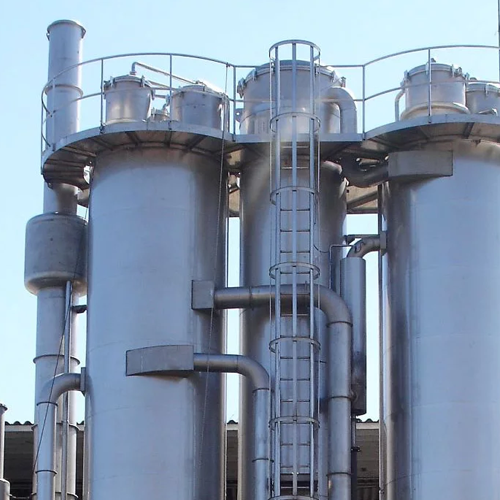
Falling film concentrators for low viscosity fruit juices
Achieve high concentration levels in fruit and dairy products ...
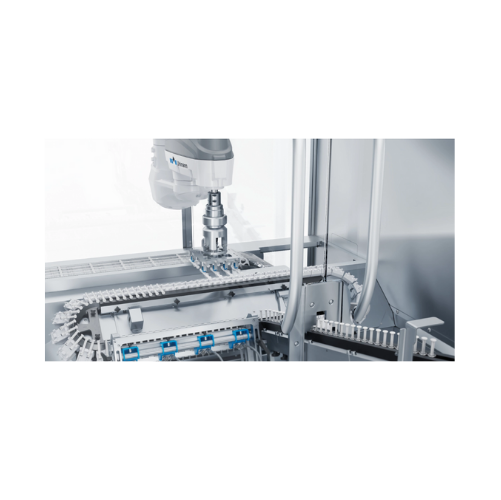
Water revitalizer for enhanced hydration and vitality
Transform ordinary water into a structured liquid with enhanced oxy...
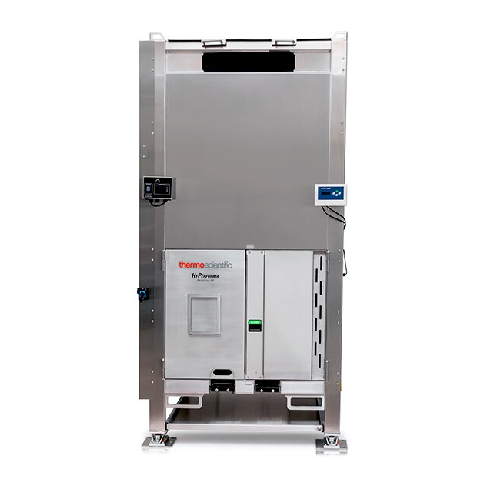
Large-volume sterile liquid storage solution
Efficiently store and transfer large volumes of sterile process liquids with ...
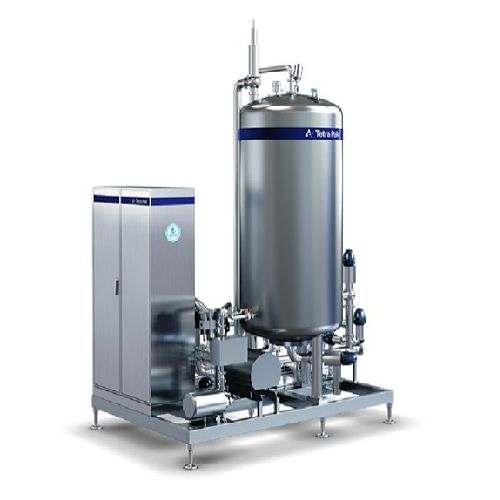
Continuous carbonator for beverage production
Optimize your beverage production with seamless continuous carbonation, ensu...
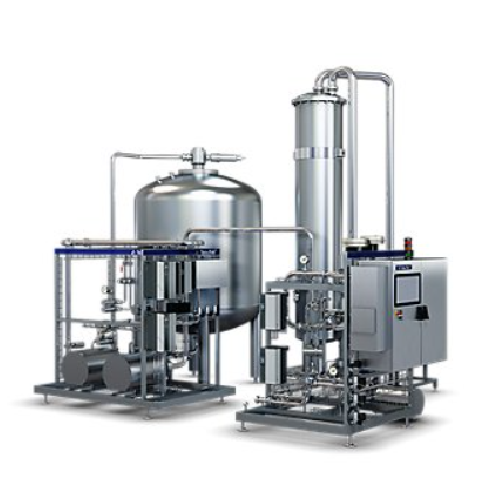
In-line blender for carbonated soft drinks
Enhance your beverage production capabilities with a solution that precisely bl...
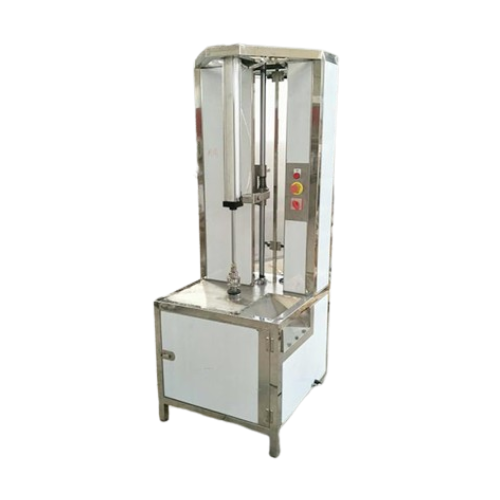
Watermelon peeling solution for industrial use
Streamline your fruit processing with a machine designed to efficiently pee...
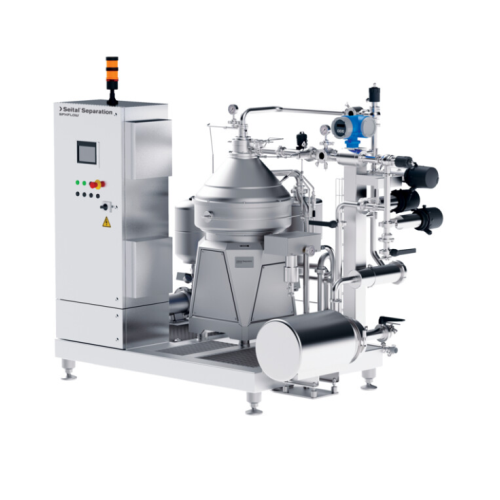
Direct drive centrifuges for dairy and beverage processing
Optimize energy efficiency in high-speed liquid separation wi...
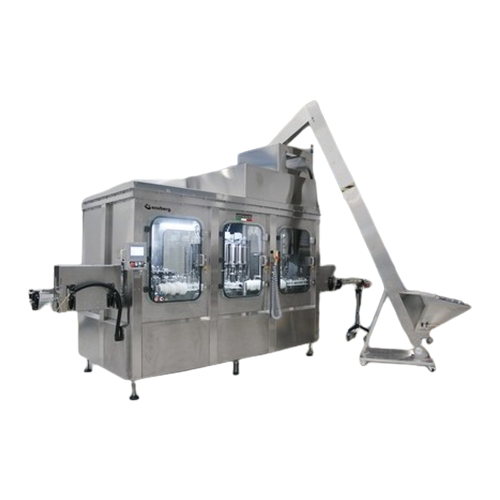
Hyper-clean electronic volumetric filler for Pet bottles
Enhance your liquid filling operations with precision and hygien...
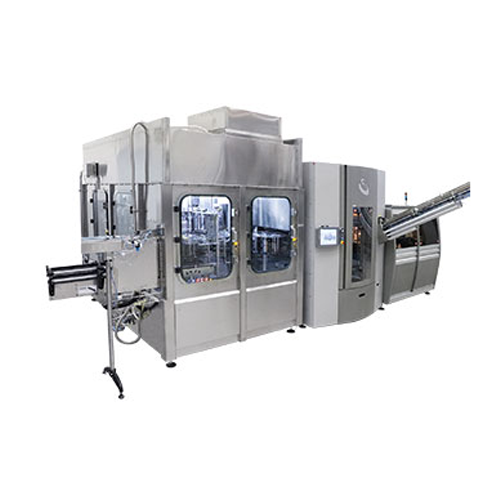
Integrated stretch-blow moulding, filling, and capping system for still liquids
Streamline your bottling process with ...
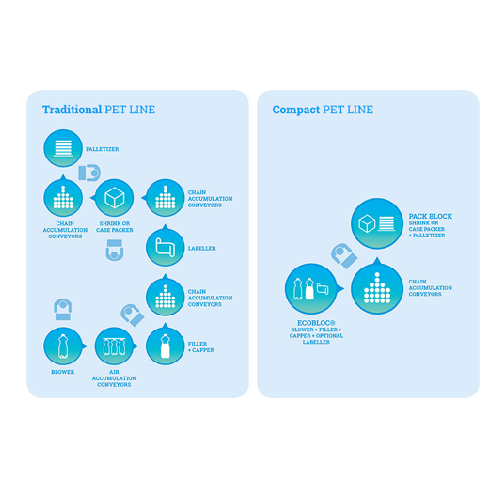
Compact bottling line for water
Revolutionize your bottling process with a compact solution that integrates multiple operati...
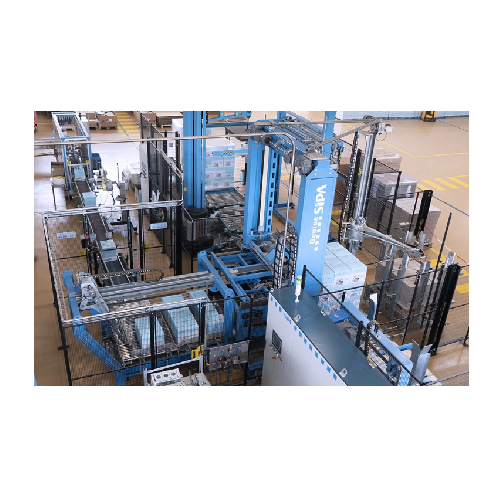
Steady and moving pallet palletizers
Optimize your packaging line with advanced palletizing solutions designed to handle di...
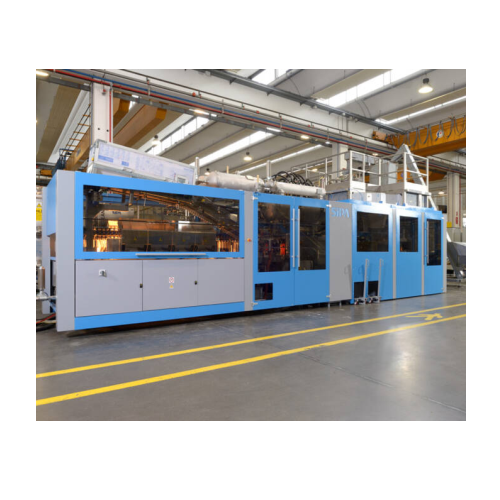
Integrated linear blowing and filling system for Pet containers
Streamline your PET container production with integrated...
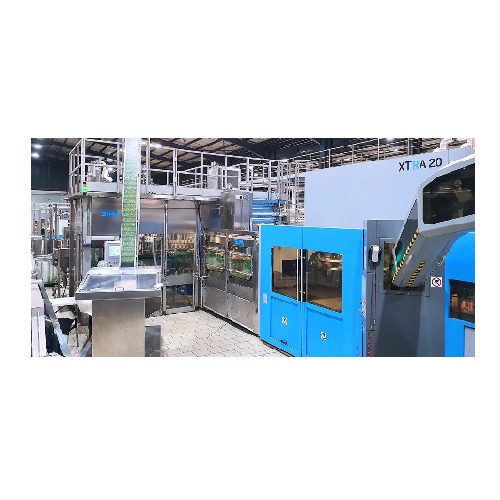
Integrated rotary blowing and filling system for Pet bottles
Optimize your beverage production with an integrated rotary...
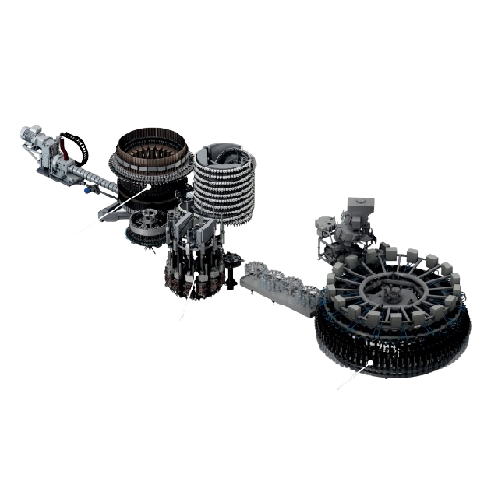
Integrated preform production and bottling system for Pet bottles
Achieve seamless production of PET bottles, from pref...
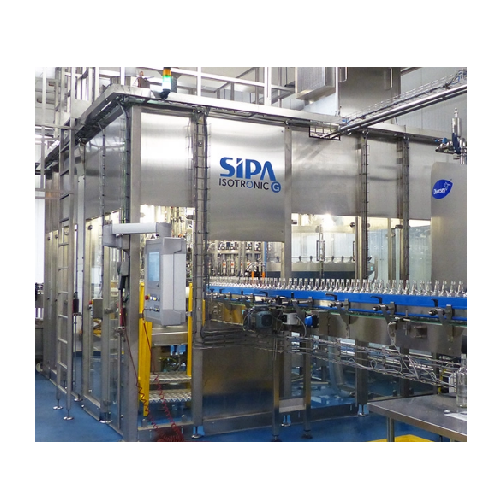
Isobaric filler for glass and Pet bottles
Achieve precise liquid filling with enhanced operational flexibility and hygiene...
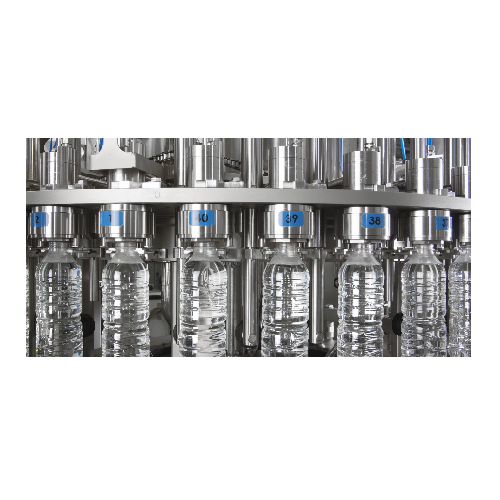
Gravity filling system for Pet bottles
Optimize your beverage production with an advanced gravity filling system, designed ...
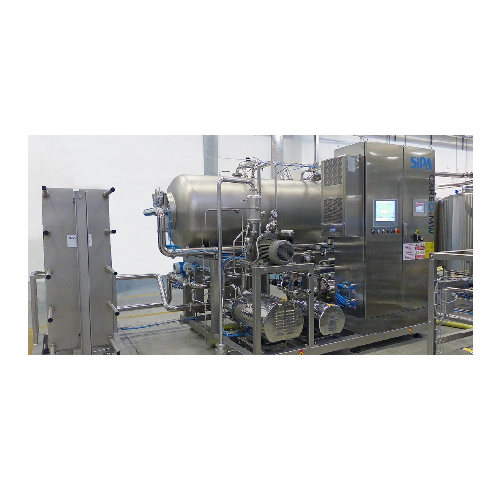
Degassing and carbonation system for mineral water
Optimize your carbonation process with a compact system that ensures p...
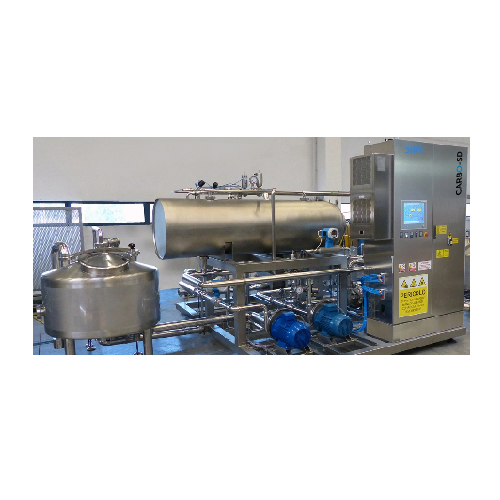
Compact carbonation unit for carbonated beverages
Enhance beverage quality with precise carbonation, ensuring consistent ...
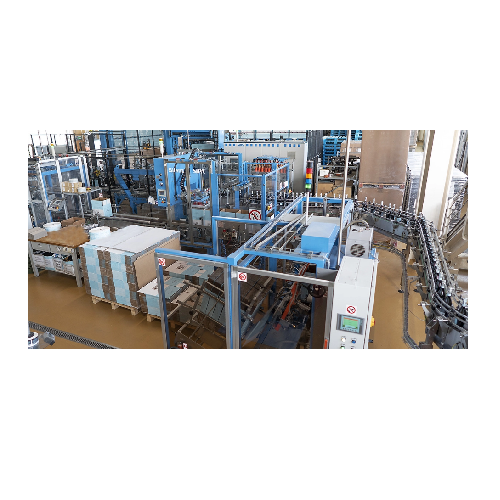
Cartoning solutions for beverage and food industries
Optimize your packaging line with a versatile range of cartoning sys...
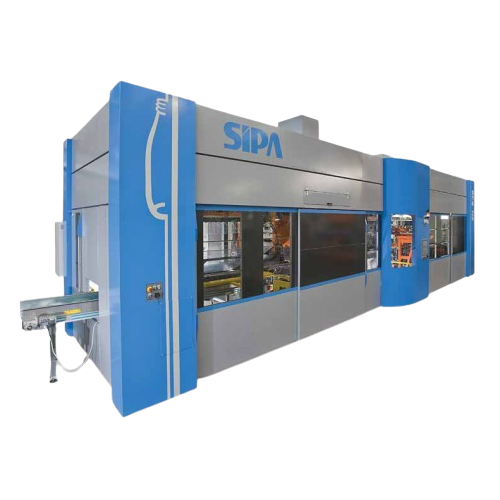
Single-stage plastic container production system
Eliminate multiple steps and minimize production costs with an integrated...
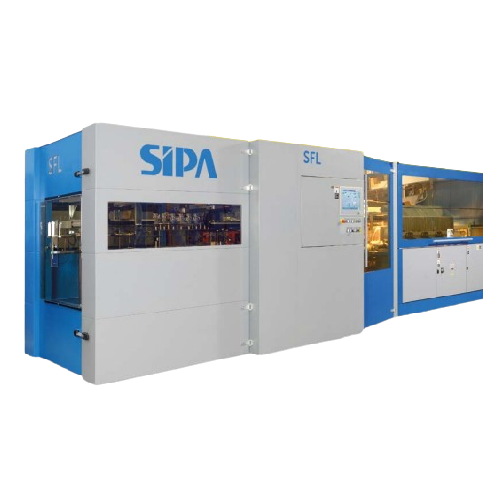
Large size container linear blow molder
Optimize your large-scale production of containers with a solution designed to stre...
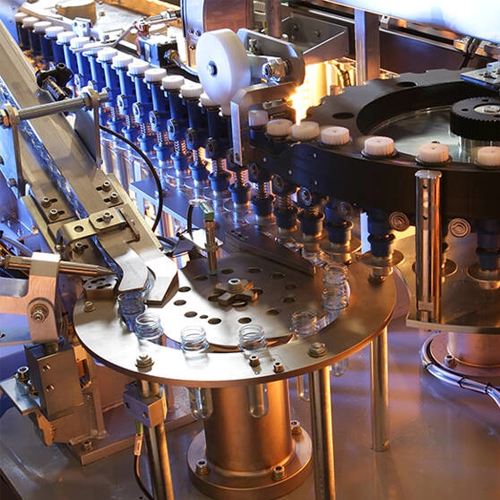
Linear blowing systems for Pet bottle production
Ideal for producers seeking versatile container solutions, this system en...
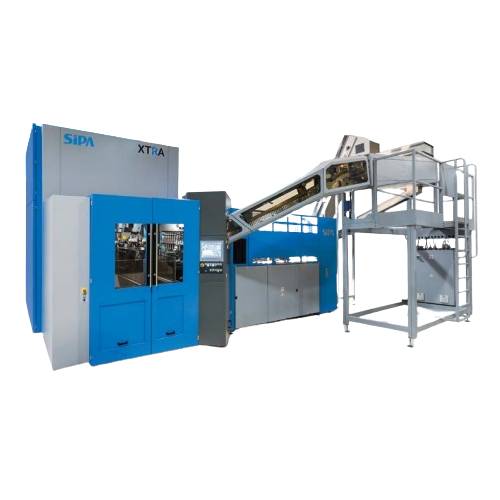
Rotary blower for Pet bottle production
Optimize PET bottle production with cutting-edge efficiency, reducing energy consum...
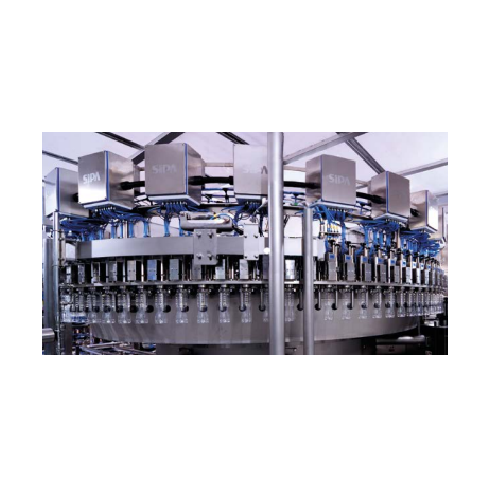
Volumetric gravity filler for large Pet bottles
Optimize your production line with a high-speed volumetric gravity filler,...
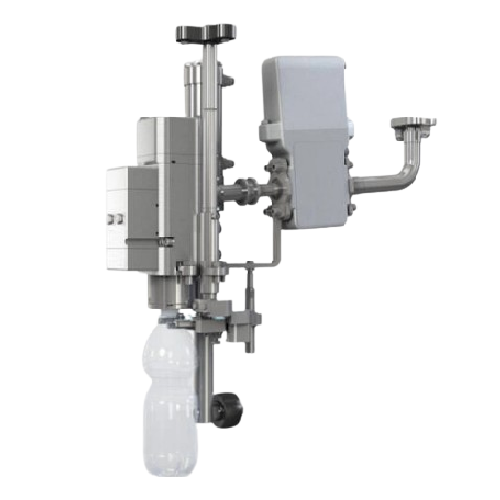
Volumetric filler for Pet bottle beverages
Experience seamless integration into your bottling line with this advanced volu...
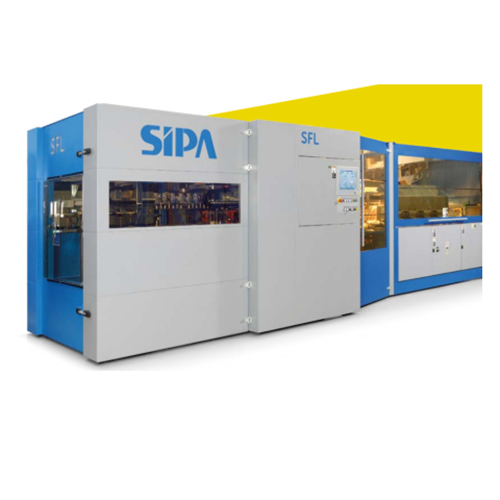
Isobaric filling system for carbonated beverages in Pet bottles
Achieve precise carbonation levels and seamless integrat...
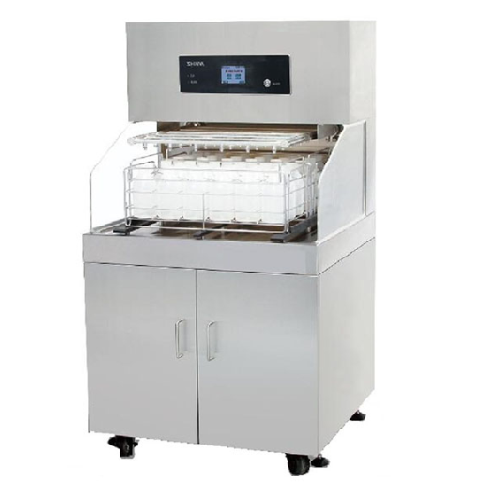
Automatic bottle filling system for animal drinking water
Streamline your laboratory bottling process with a high-effici...
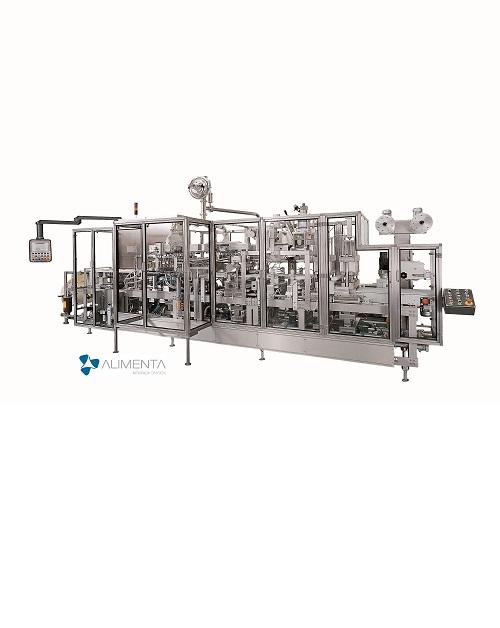
High-speed FFS machine for water cups
Packing water in cup containers, asks for good hygiene in order to avoid contaminatio...
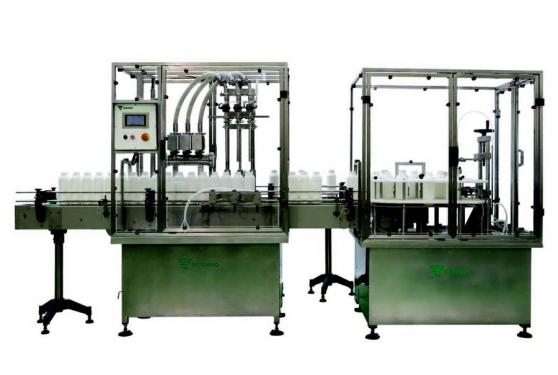
Linear automatic bottling machine for liquids
Autonomous filling systems are a very widely utilized solution for the consi...
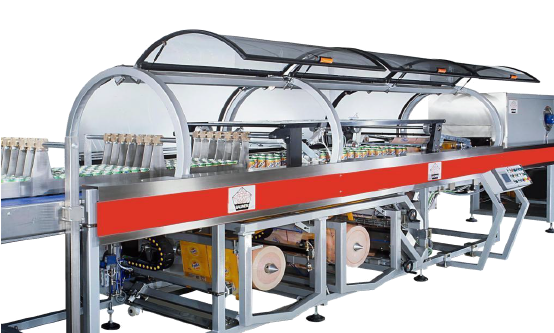
Shrink wrapping machine for PET bottles
During a shrink-wrapping process, a change of reel can slow down the production cyc...
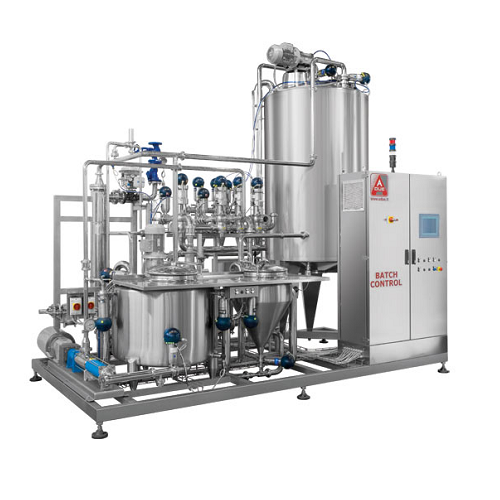
Mixing tanks for beverages
Juice production lines require multiple ingredients to be typically mixed with water. The incorpo...
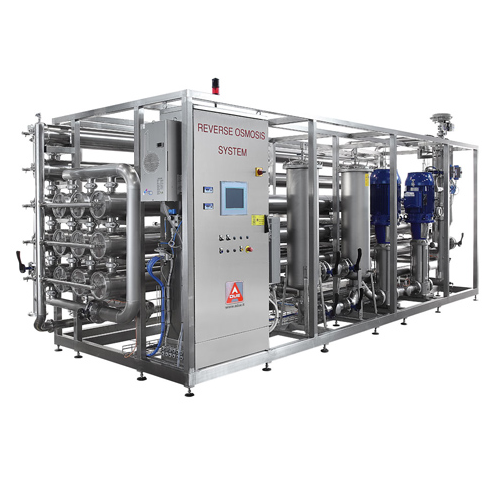
Water treatment for beverage preparation
Water is one of the main ingredients in producing juices and other beverages. If i...
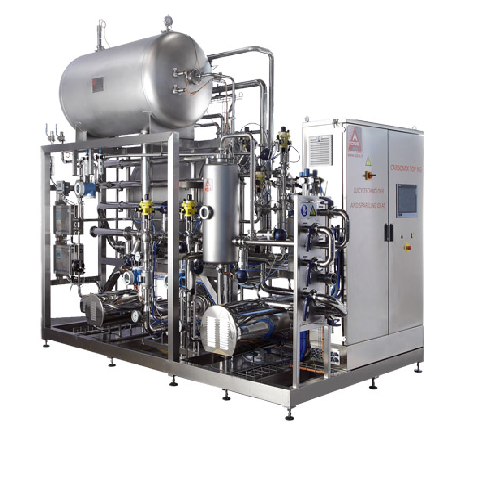
Carbonation machine for beverages
For producers of alcoholic beverages it can be interesting to include hard seltzer in the...
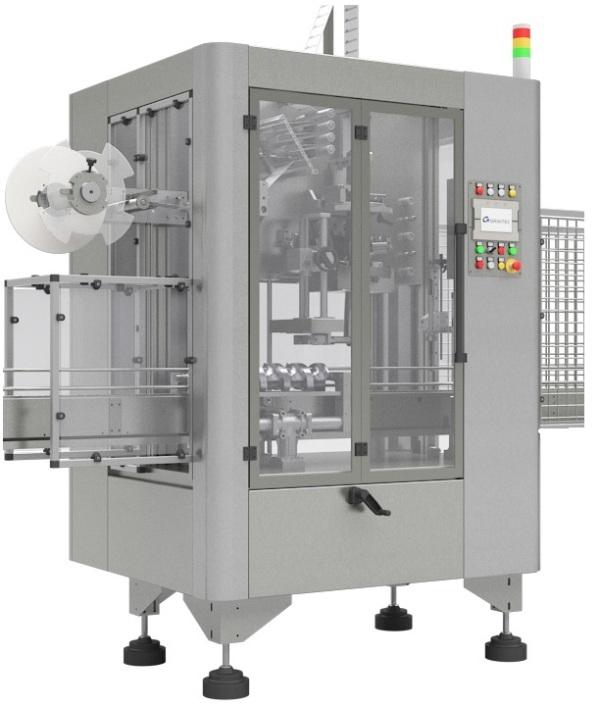
Shrink sleeve labeling machine
Shrink sleeves are new type of full-colour labels that give the opportunity to create a 360-d...
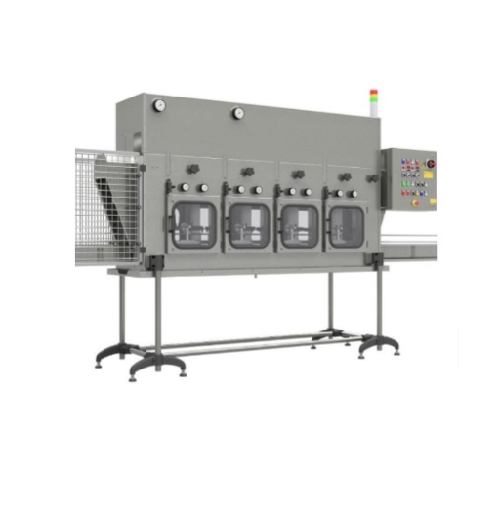
Steam tunnel for shrink sleeve labels
When it comes to the option of applying sleeves or film on a container without wrinkl...
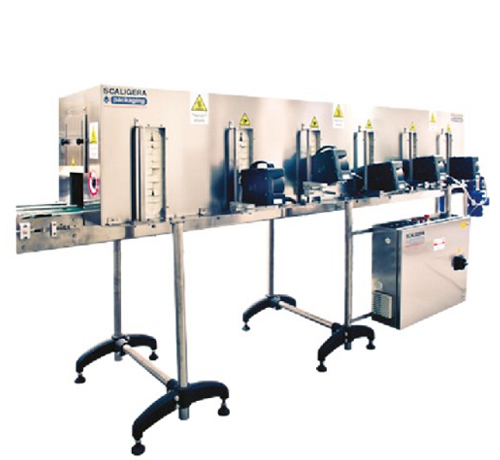
Hot air tunnel for shrink sleeve labels
Sleeves are very popular in food, beverage, Chemical and pharmaceutical industry be...
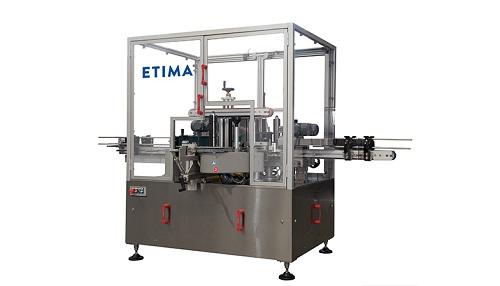
Self-adhesive linear labeling machine for bottles
It is vital to have precise and long-lasting labels on bottles to avoid...
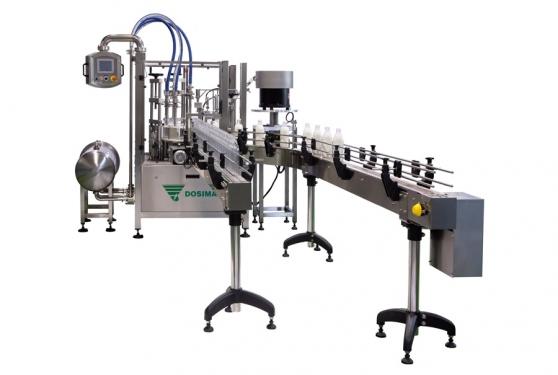
Automatic bottling machine for beverage
One of the biggest challenges when bottling beverage drinks is that many of the bot...
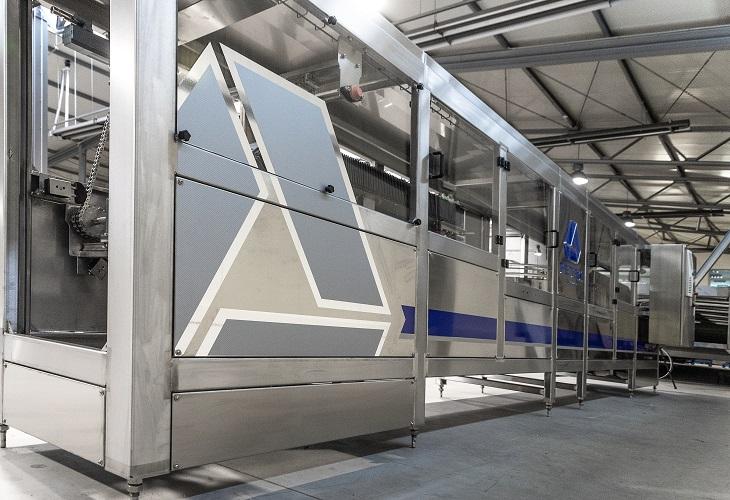
Industrial bottle sterilizer
Sterilization is an important process in the beverage industry to kill microorganisms. It is im...
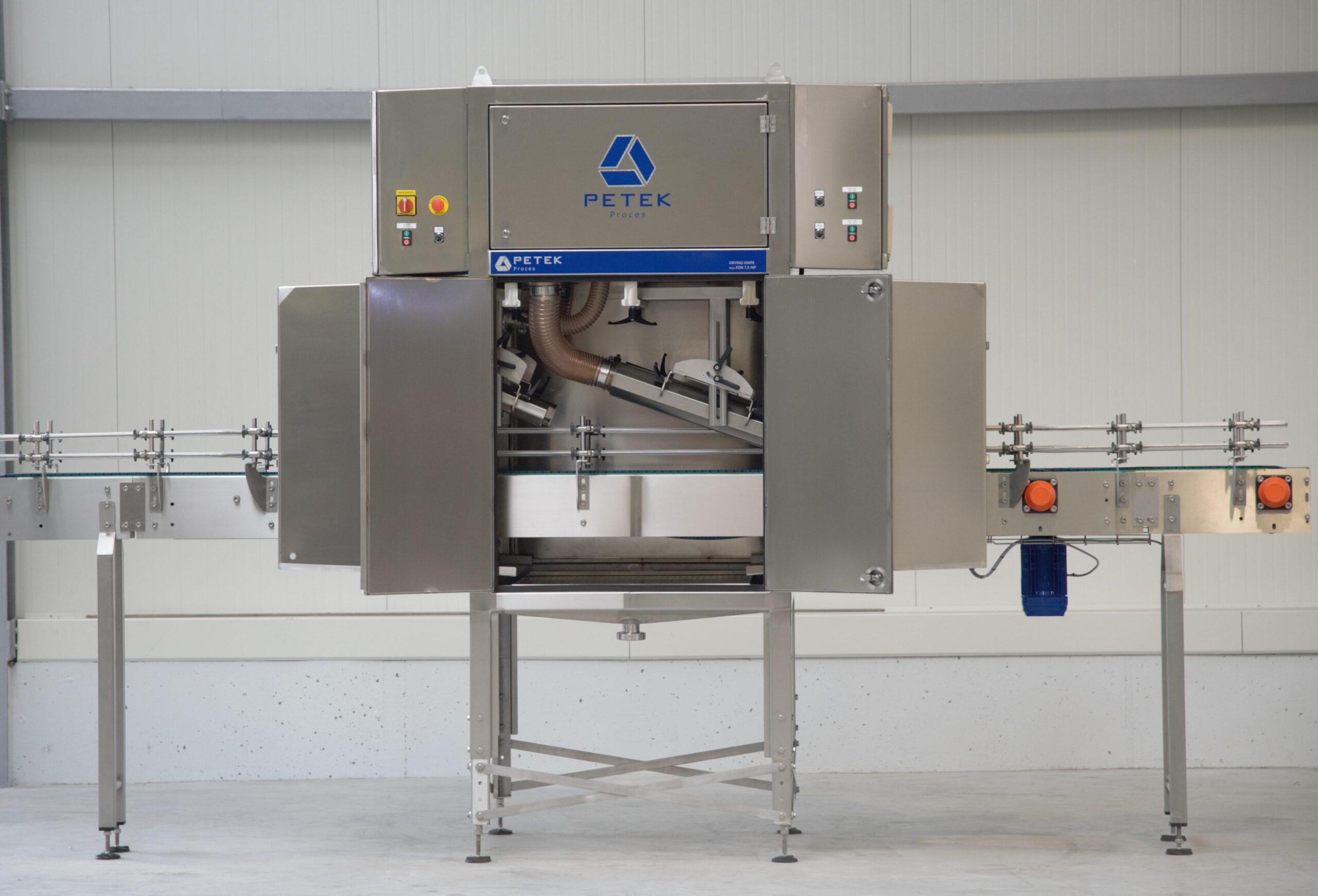
Air knife system for bottling lines
Wet containers are unacceptable and can be problematic in the food and beverage industr...
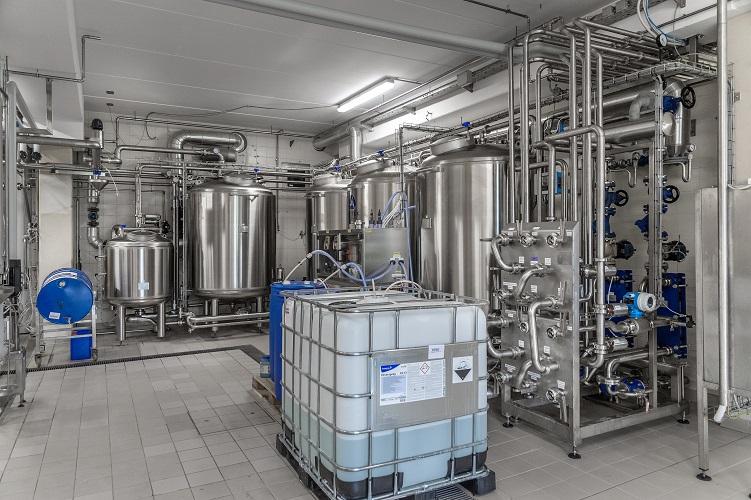
CIP system for beverage
Clean-in-place operations are a mandatory part of food and beverage processing which cannot fail. How...
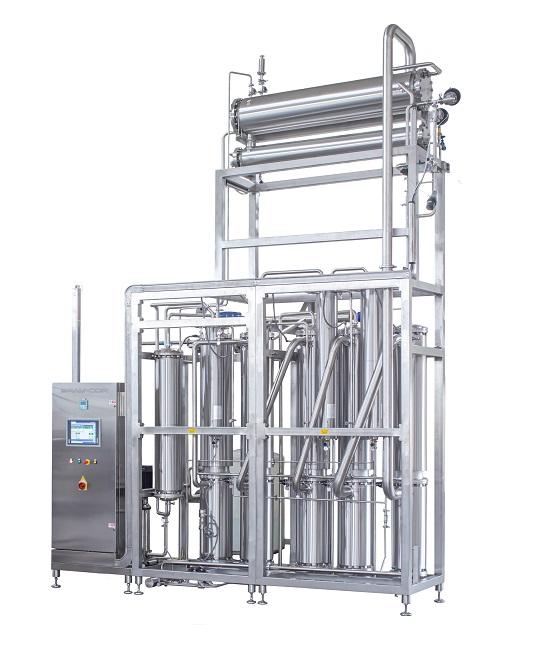
Water distillation system
Water used in pharmaceutical processes must meet high standards of regulatory bodies. These includ...
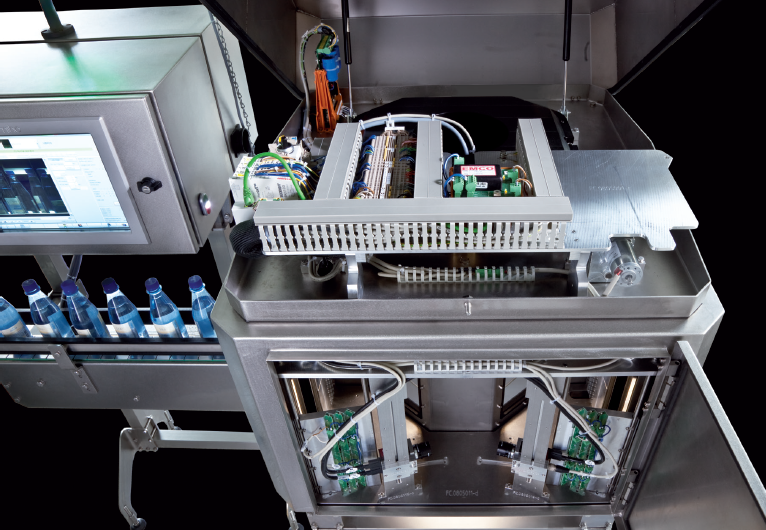
Versatile bottle sorting system
Quality bottle sorting machine and inspection system which can be put to use not only after ...
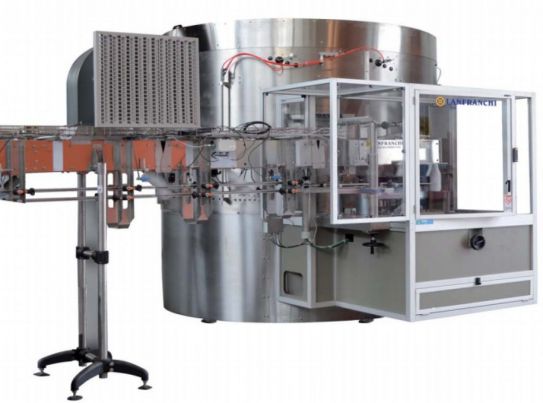
High-speed unscrambler for large bottles
Large volume plastic bottling plants need high-speed unscramblers suitable for lar...
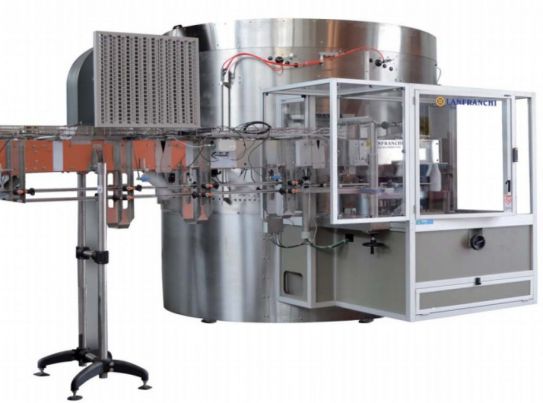
High-speed unscrambler for small bottles
Large-scale production of smaller volume bottled product needs a gentle, accurate ...
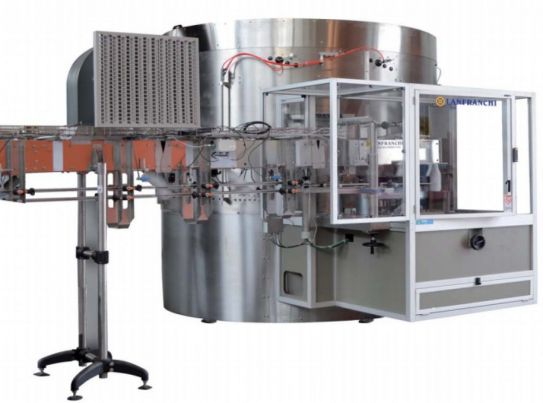
Low-speed unscrambler
Smaller plastic bottling lines need a lower cost, lower volume unscrambling machine that maintains gent...
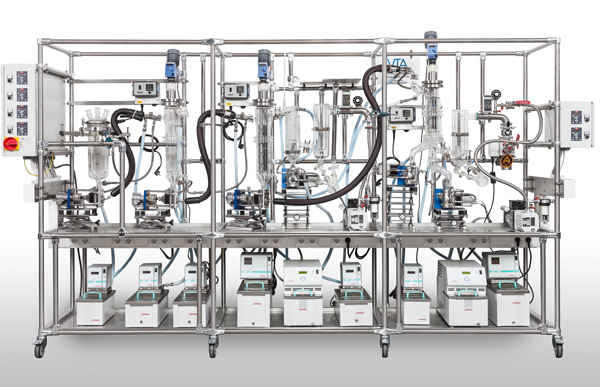
Laboratory multi-stage distiller
A laboratory multi-stage distillers that combines the wiped film and short path distillatio...
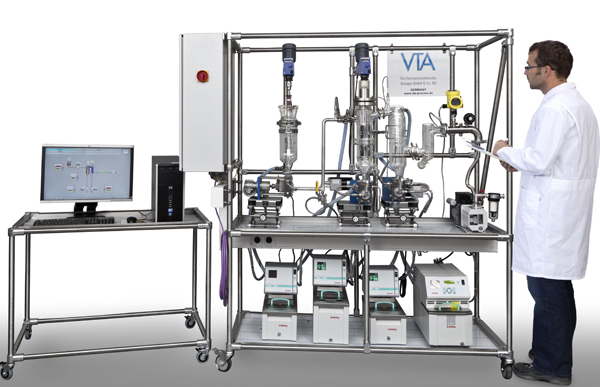
Laboratory wiped film distiller
Reach reliable conclusions testing the distillation of high-boiling or highly viscous materi...
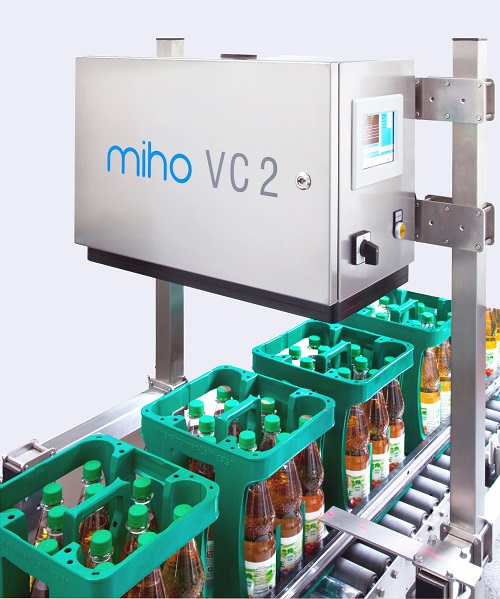
Full crate inspection system
State of the art crate inspection system that uses a laser camera system to see if the bottles ...
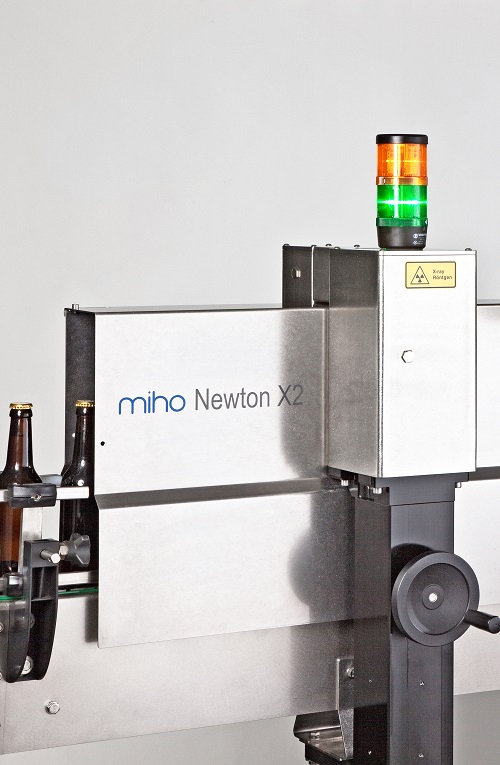
High-precision X-ray fill level controller
High-speed, high precision X-ray system to inspect containers that are difficul...
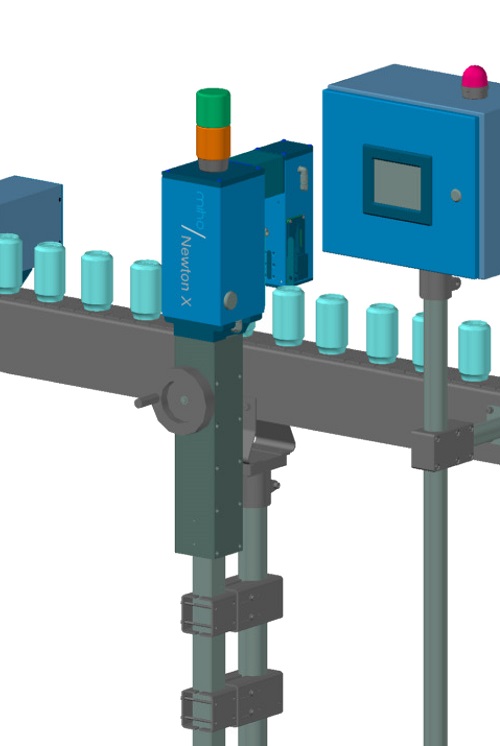
X-ray fill level controller
For containers that are difficult to see through, such as cans or cartons lined with aluminium, ...
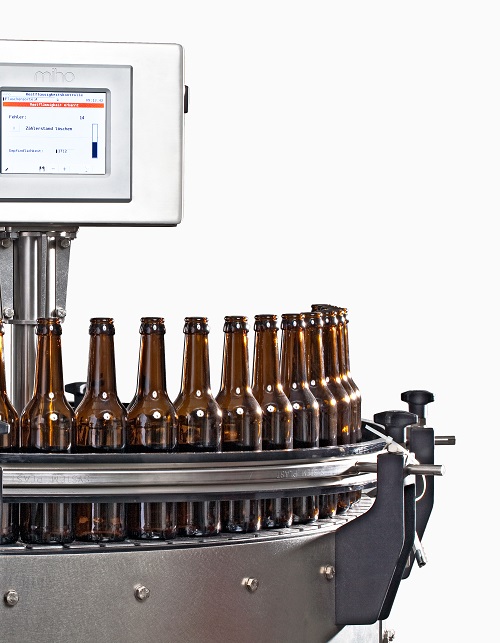
Advanced residual liquid inspection system
Advanced and easy to use inspection system that eliminates the risk of residual...
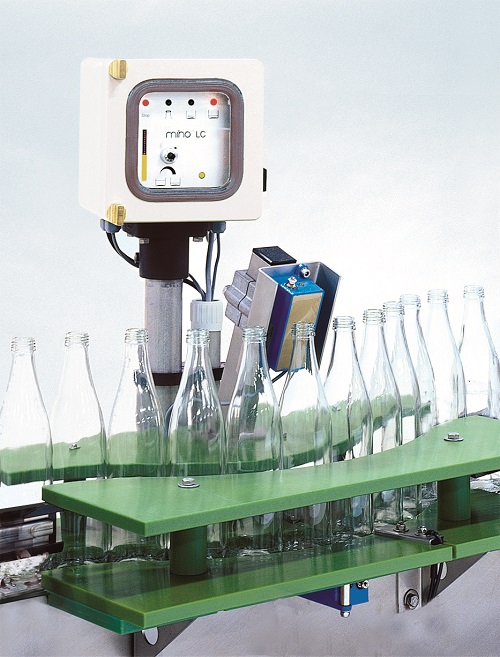
Residual liquid inspection system
Inspection system that eliminates the risk of residual liquid, water or left over drink i...
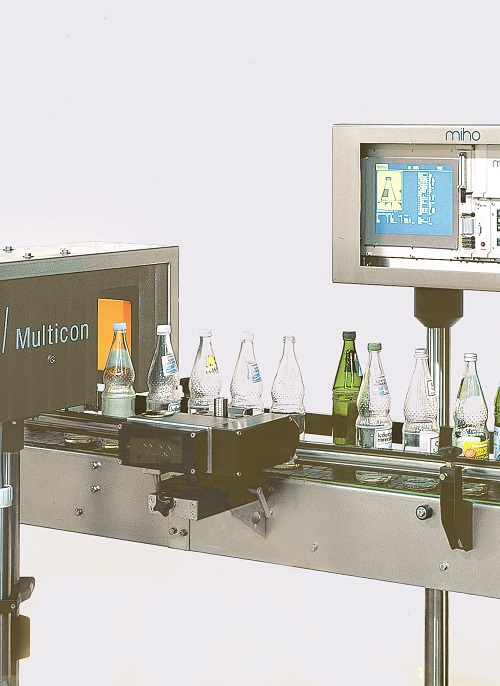
Empty bottle shape, colour and size sorting system
Accurate bottle sorting system that differentiates between the bottles...
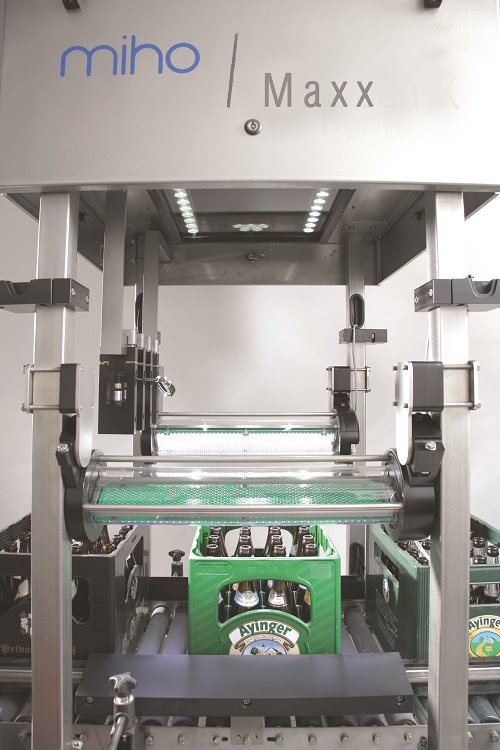
Empty crate inspection system
Extensive and much-differentiated inspection of both the crate and the bottle that allows you ...
